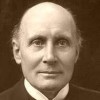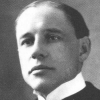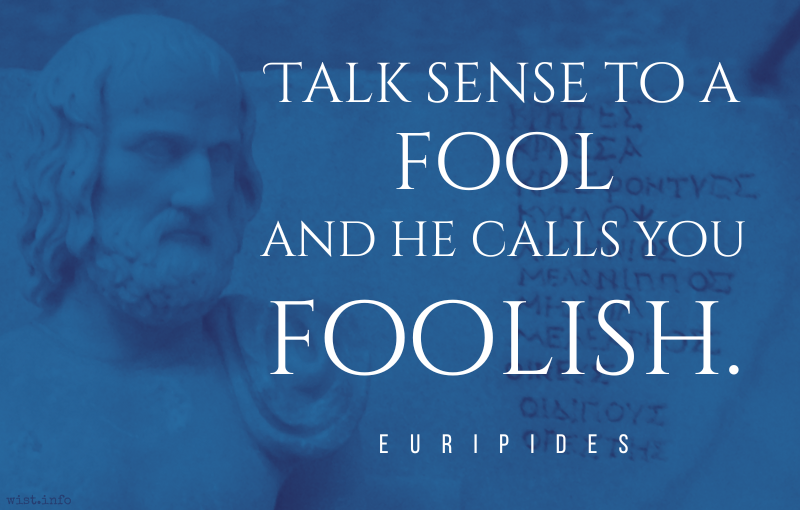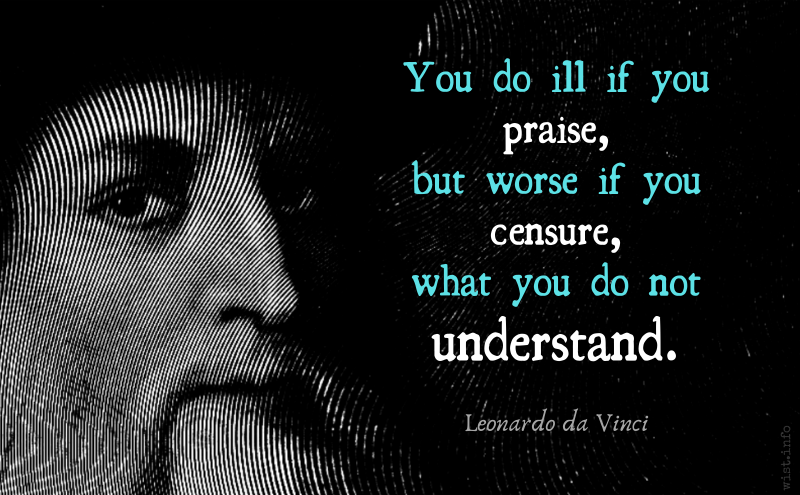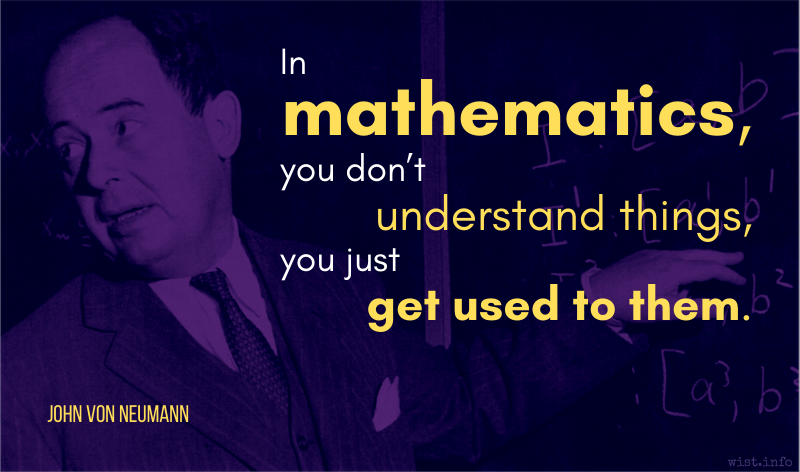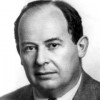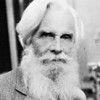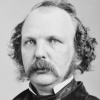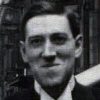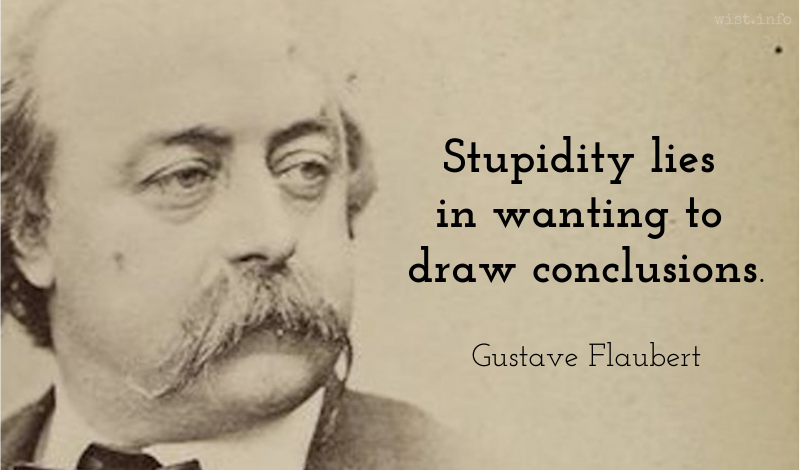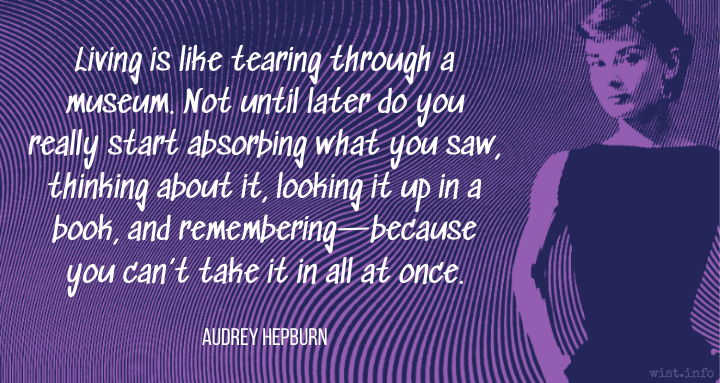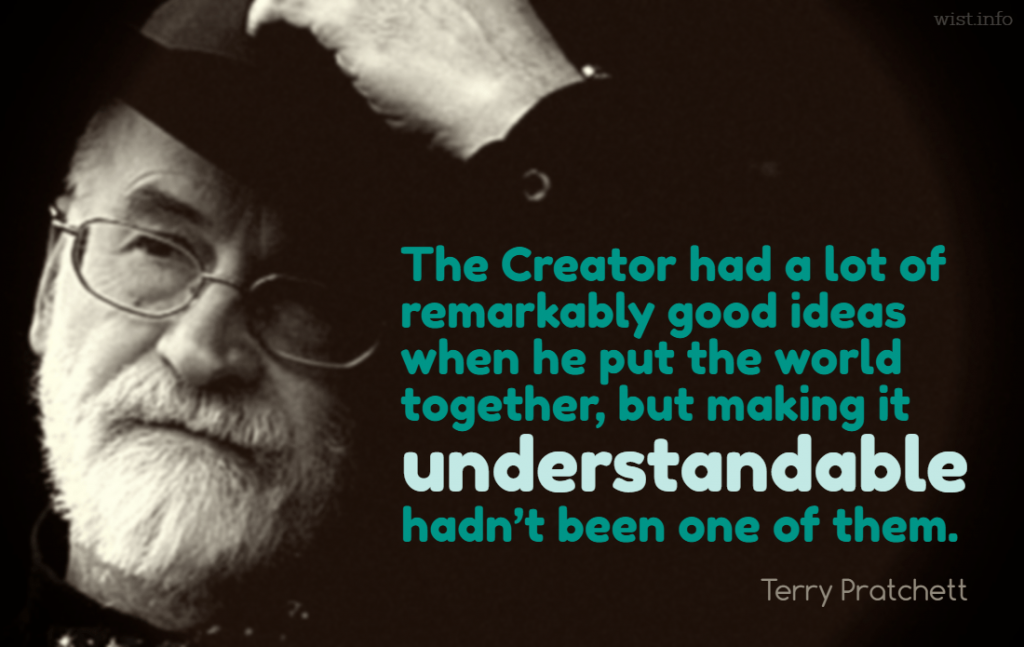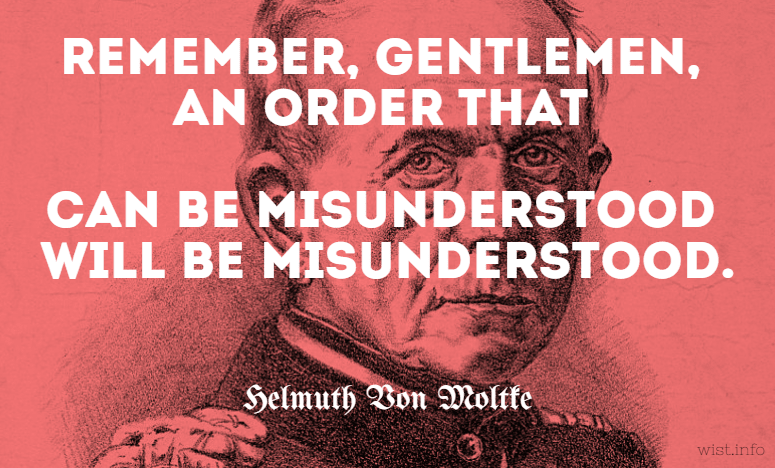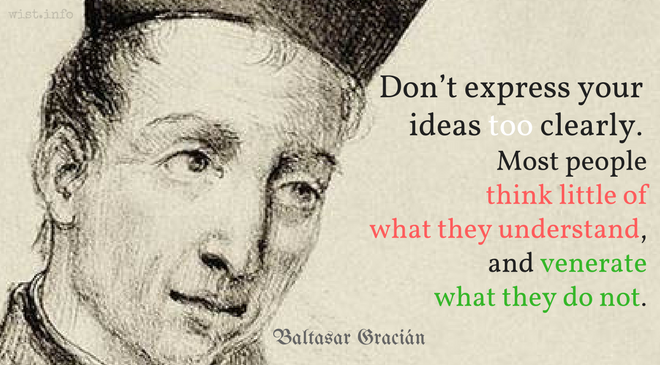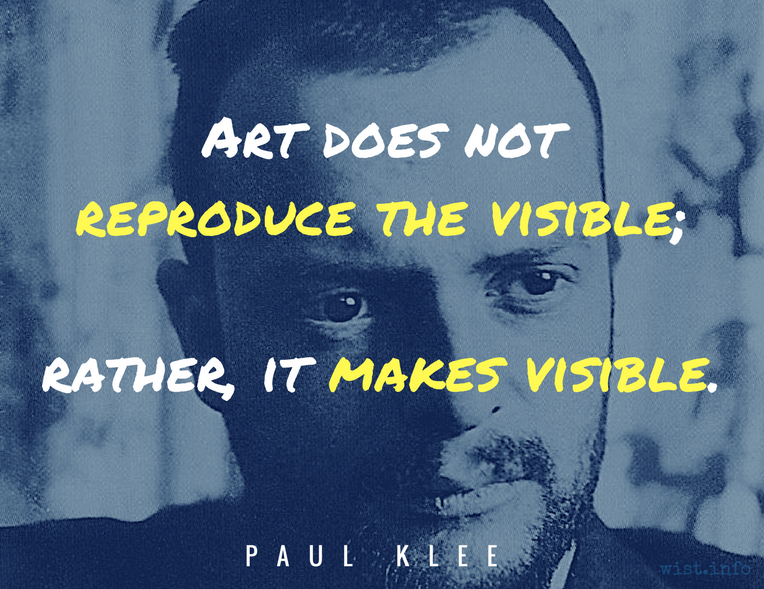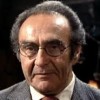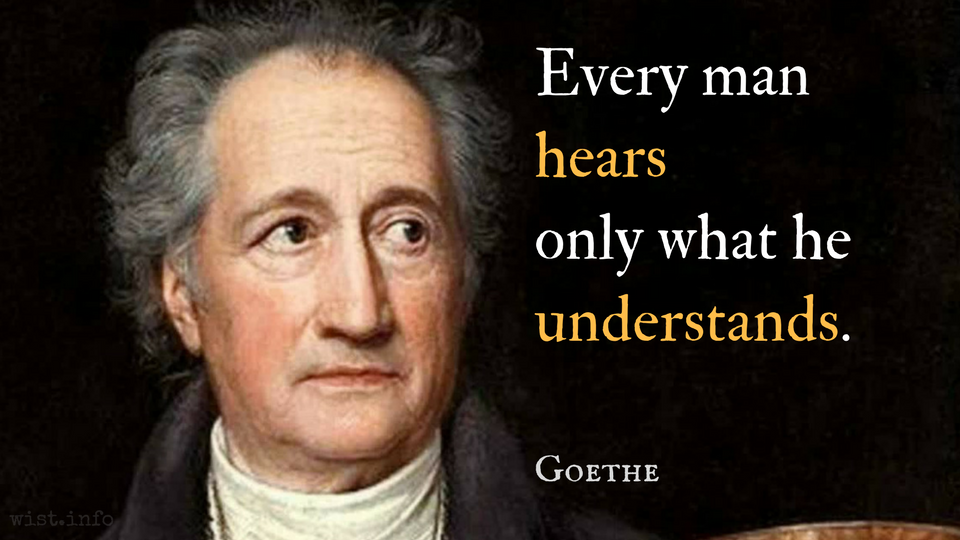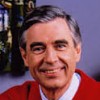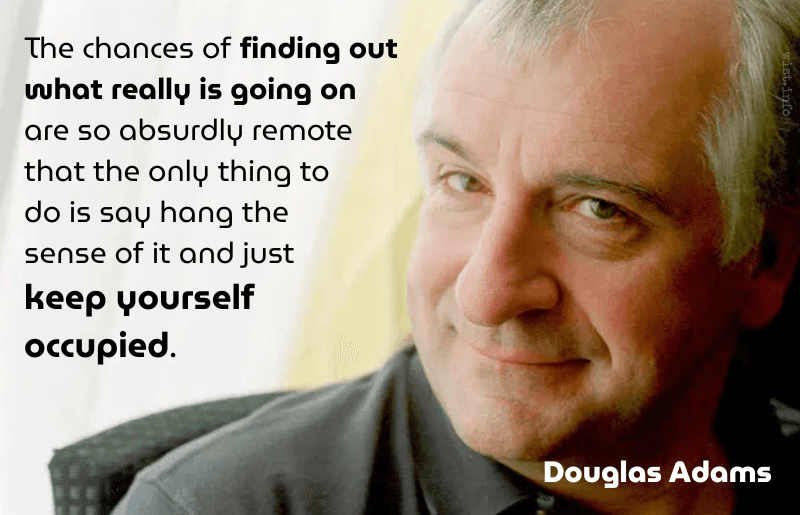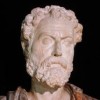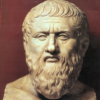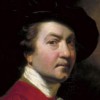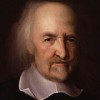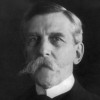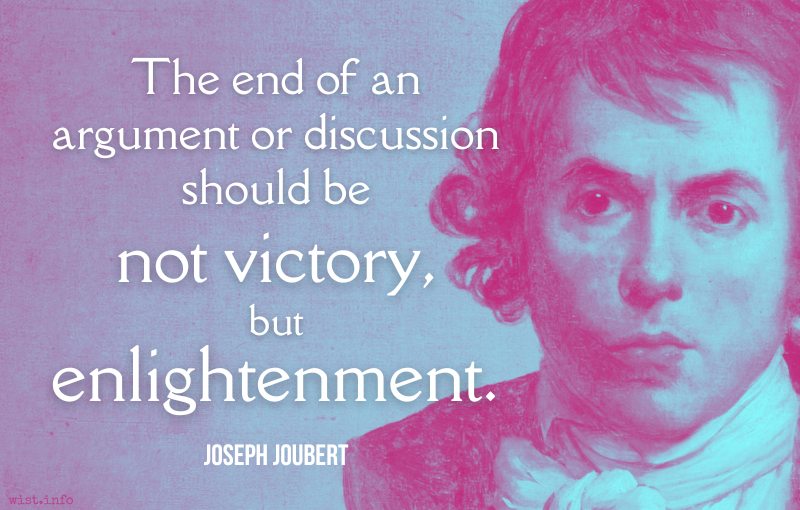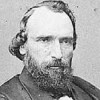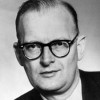In the democracies of the world, the passion for freedom of speech and of thought is always accentuated when there is an effort anywhere to keep ideas away from people and to prevent them from making their own decisions. One of the best ways of enslaving a people is to keep them from education and thus make it impossible for them to understand what is going on in the world as a whole. […] The second way of enslaving a people is to suppress the sources of information, not only by burning books, but by controlling all the other ways in which ideas are transmitted.
Eleanor Roosevelt (1884-1962) First Lady of the US (1933-45), politician, diplomat, activist
Column (1943-05-11), “My Day”
(Source)
Quotations about:
understanding
Note not all quotations have been tagged, so Search may find additional quotes on this topic.
We can gain no lasting peace if we approach it with suspicion and mistrust — or with fear. We can gain it only if we proceed with the understanding and the confidence and the courage which flow from conviction.
Franklin Delano Roosevelt (1882-1945) American lawyer, politician, statesman, US President (1933-1945)
Speech (1945-01-20), Inaugural Address, Washington, D.C.
(Source)
Not only do I not know what’s going on, I wouldn’t know what to do about it if I did.
George Carlin (1937-2008) American comedian
Book (1997), Brain Droppings, “Sometimes A Little Brain Damage Can Help”
(Source)
The world is a higgledy-piggledy place, containing things pleasant and things unpleasant in haphazard sequence. And the desire to make an intelligible system or pattern out of it is at bottom an outcome of fear, in fact a kind of agoraphobia or dread of open spaces. Within the four walls of his library the timid student feels safe. If he can persuade himself that the universe is equally tidy, he can feel almost equally safe when he has to venture forth into the streets.
Bertrand Russell (1872-1970) English mathematician and philosopher
Conquest of Happiness, Part 2, ch. 12 “Affection” (1930)
(Source)
Now I laugh at my fear of analysis. Most people’s possession of knowledge deprives them of the sense of wonder, but such a sense of wonder and mystery is like the savage’s fear of mysterious fire until he discovers the principle of it and the mastering of it. I say that after we know all there is to know, there is still mystery and wonder of a deeper kind.
Anaïs Nin (1903-1977) Catalan-Cuban-French author, diarist
Diary (1932-11-27)
(Source)
Source of the more commonly encountered paraphrase (e.g.):I have no fear of clarity. The possession of knowledge does not kill the sense of wonder and mystery. There is always more mystery. I have no fear of analysis. The possession of knowledge does not destroy the sense of wonder and mystery.
The instant we admit that a book is too sacred to be doubted, or even reasoned about, we are mental serfs. It is infinitely absurd to suppose that a god would address a communication to intelligent beings, and yet make it a crime, to be punished in eternal flames, for them to use their intelligence for the purpose of understanding his communication. If we have the right to use our reason, we certainly have the right to act in accordance with it, and no god can have the right to punish us for such action.
One doesn’t have to operate with great malice to do great harm. The absence of empathy and understanding are sufficient.
Charles M. Blow (b. 1970) American journalist, commentator, columnist
Essay (2012-09-19), “I Know Why the Caged Bird Shrieks,” New York Times
(Source)
My business, my art, is to live my life. If anyone forbids me to talk about it according to my own sense, experience and practice, let him also command an architect to talk about buildings not according to his own standard but his next-door neighbour’s, according to somebody else’s knowledge not his own.
[Mon mestier & mon art, c’est vivre. Qui me defend d’en parler selon mon sens, experience & usage : qu’il ordonne à l’architecte de parler des bastimens non selon soy, mais selon son voisin, selon la science d’un autre, non selon la sienne.]
Michel de Montaigne (1533-1592) French essayist
Essays, Book 2, ch. 6 (2.6), “Of Practice [De l’exercitation]” (1574?) [tr. Screech (1987)]
(Source)
(Source (French)). Alternate translations:My arte and profession, is to live. Who forbids mee to speake of it, according to my sense, experience, and custome? Let him appoint the Architect to speake of buildings, not according to himselfe, but his neighbours, according to anothers skill, and not his owne.
[tr. Florio (1603)]My art and business is to live. He that forbids me to speak according to my own sense, experience, and practice, may as well enjoin an architect to speak of buildings not in his own style, but in his neighbour's; not according to his own science, but according to another man's.
[tr. Cotton (1686)]My trade and art is to live; he that forbids me to speak according to my own sense, experience, and practice, may as well enjoin an architect not to speak of building according to his own knowledge, but according to that of his neighbor; according to the knowledge of another, and not according to his own.
[tr. Cotton/Hazlitt (1877)]My profession and my art is living. Whoever forbids me to speak of this according to my perceptions, experience, and habit, let him bid the architect talk about buildings, not according to his own ideas, but according to those of his neighbour; according to another's knowledge, not according to his own.
[tr. Ives (1925)]My trade and my art is to live. He that forbids me to speak of it according to my own sense, experience, and practice, let him command an architect to speak of buildings not in his own style but his neighbour's, according to another man's knowledge, not according to his own.
[tr. Zeitlin (1934)]My trade and my art is living. He who forbids me to speak about it according to my sense, experience, and practice, let him order the architect to speak of buildings not according to himself but according to his neighbor; according to another man’s knowledge, not according to his own.
[tr. Frame (1943)]Living is my job and my art.
[ed. Rat (1958)]Living is my work, and my art. Let anyone who forbids me to speak of it according to my understanding, experience, and practice order an architect to speak of his buildings according, not to himself, but to his neighbor; according to his knowledge, not his own.
[tr. Atkinson/Sices (2012)]
Some people see things that are and ask, Why? Some people dream of things that never were and ask, Why not? Some people have to go to work and don’t have time for all that shit.
MARTINE: We always speak well when we make ourselves understood.
[MARTINE: Quand on se fait entendre, on parle toujours bien.]
Molière (1622-1673) French playwright, actor [stage name for Jean-Baptiste Poquelin]
Les Femmes Savantes [The Learned Ladies], Act 2, sc. 6, (1692) [tr. Van Laun (1876)]
(Source)
(Source (French)). Other translations:When one makes ones self understood, one always speaks well.
[tr. Clitandre (1739)]Provided one is understood, one speaks well enough.
[tr. Wall (1879), The Learned Women]One always speaks well when one makes oneself understood.
[tr. Matthew (1890), The Blue-Stockings]I say, when we can make folks understand us, that's good talking.
[tr. Wormeley (1895), The Female Pedants]To make oneself understood is good enough language for me.
[tr. Waller (1903)]It's speaking well, if you are understood.
[tr. Page (1908)]Whenever people understand you, you’re talkin’ good.
[tr. Marks (2018)]If you make yourself understood, you're always speaking well.
[E.g.]
We can never understand other people’s motives, nor their furniture.
Mignon McLaughlin (1913-1983) American journalist and author
The Neurotic’s Notebook, ch. 3 (1963)
(Source)
All beings possess imagination to varying degrees. It can be encouraged and nurtured, or can sometimes shine out in moments of stress. But curiosity is a choice. Some wish to have it. Others don’t.
Timothy Zahn (b. 1951) American writer
Thrawn Ascendancy, Book 1: Chaos Rising, ch. 15 [Thrawn] (2020)
(Source)
A point of view can be a dangerous luxury when substituted for insight and understanding.
Marshall McLuhan (1911-1980) Canadian philosopher, communication theorist, educator
The Gutenberg Galaxy, “Typographic man can express but is helpless to read the configurations of print technology” (1962)
(Source)
We must be content with the light that it may please the sun to shed upon us by his beams; and he who shall raise his eyes to bring a brighter beam into his very body, let him not think it strange if, for the punishment of his audacity, he thus lose his sight.
[Il se faut contenter de la lumiere qu’il plaist au Soleil nous communiquer par ses rayons, & qui eslevera ses yeux pour en prendre une plus grande dans son corps mesme, qu’il ne trouve pas estrange, si pour la peine de son outrecuidance il y perd la veuë.]
Michel de Montaigne (1533-1592) French essayist
Essays, Book 1, ch. 31 (1.31), “That a Man Is Soberly to Judge of the Divine Ordinance [Qu’il faut sobrement se mesler de juger des ordonnances divines] (1572) [tr. Ives (1925), ch. 32]
(Source)
On discerning God's will.
This passage of this essay was in the 1st (1580) edition.
(Source (French)). Alternate translations:A man should be satisfied with the light, which it pleaseth the Sunne to communicate unto us by vertue of his beames; and he that shall lift up his eyes to take a greater within his bodie, let him not thinke it strange, if for a reward of his over-weening and arrogancie he loose his sight.
[tr. Florio (1603)]We are to content ourselves with the light it pleases the sun to communicate to us, by virtue of his rays, and he that will lift up his eyes to take in a greater, let him not think it strange if, for the punishment of his presumption, he thereby lose his sight.
[tr. Cotton (1686)]We are to content ourselves with the light it pleases the sun to communicate to us, by virtue of his rays; and who will lift up his eyes to take in a greater, let him not think it strange, if for the reward of his presumption, he there lose his sight.
[tr. Cotton/Hazlitt (1877)]We must be content with the light that it pleases the sun to communicate to us by its rays; and if anyone raises his eyes to gain a greater light from its very body, let him not find it strange if as a penalty for his presumption he loses his sight.
[tr. Frame (1943), 1.32]We must be content with the light which the Sun vouchsafes to shed on us by its rays: were a man to lift up his eyes to seek a greater light in the Sun itself, let him not find it strange if he is blinded as a penalty for his presumption.
[tr. Screech (1987), 1.32]
There are two things that I don’t care how smart you are, you will never understand. One is an alienist’s [psychiatrist’s] testimony, and the other is a railroad time table.
Will Rogers (1879-1935) American humorist
Column (1924-08-24), “Weekly Article: About Peggy, the Prince, Candidates, and Coolidge” [No. 89]
(Source)
History is opaque. You see what comes out, not the script that produces events, the generator of history. There is a fundamental incompleteness in your grasp of such events, since you do not see what’s inside the box, how the mechanisms work. What I call the generator of historical events is different from the events themselves, much as the minds of the gods cannot be read just by witnessing their deeds. You are very likely to be fooled about their intentions.
Nassim Nicholas Taleb (b. 1960) Lebanese-American essayist, statistician, risk analyst, aphorist
The Black Swan, Part 1, ch. 1 “The Apprenticeship of an Empirical Skeptic” (2007)
(Source)
I don’t particularly care about the usual. If you want to get an idea of a friend’s temperament, ethics, and personal elegance, you need to look at him under the tests of severe circumstances, not under the regular rosy glow of daily life. Can you assess the danger a criminal poses by examining only what he does on an ordinary day? Can we understand health without considering wild diseases and epidemics? Indeed the normal is often irrelevant.
Nassim Nicholas Taleb (b. 1960) Lebanese-American essayist, statistician, risk analyst, aphorist
The Black Swan, Introduction (2007)
(Source)
And what does this metastasizing testing, for every subject, at every level, at every time of the year, do to kids? It has to mean that students absorb the message that learning is a joyless succession of hoops through which they must jump, rather than a way of understanding and mastering the world. Every question has one right answer; the measure of a person is a number. Being insightful, or creative, or, heaven forfend, counterintuitive counts for nothing.
Anna Quindlen (b. 1953) American journalist, novelist
Article (2005-06-12), “Testing: One, Two, Three,” Newsweek
(Source)
He was about to urge her to let well alone and trust heaven to do justice, but then he had a sudden vision of heaven’s justice as the Church sometimes applied it, in good but dreadful faith, with all the virtuous narrowness and pitilessness of minds blind and deaf to the infinite variety of humankind, its failings, and aspirations, and needs, and forgetful of all the Gospel reminders concerning publicans and sinners.
Ellis Peters (1913-1995) English writer, translator [pseud. of Edith Mary Pargeter, who also wrote under the names John Redfern, Jolyon Carr, Peter Benedict]
The Holy Thief, ch. 11 (1992)
(Source)
“Knowledge is what man is all about. People like you have tried to hold back progress since the beginning of time. But they failed, and you failed. Man needs to know.”
“Maybe,” Sanders said, “But is that the only thing man needs? I don’t think so. I think he also needs mystery, and poetry, and romance. I think he needs a few unanswered questions, to make him brood and wonder.”George R. R. Martin (b. 1948) American author and screenwriter [George Raymond Richard Martin]
“With Morning Comes Mistfall,” Analog (1973-05)
(Source)
Collected in Portraits of His Children (1987)
We humans, facing limits of knowledge, and things we do not observe, the unseen and the unknown, resolve the tension by squeezing life and the world into crisp commoditized ideas, reductive categories, specific vocabularies, and prepackaged narratives, which, on the occasion, has explosive consequences.
Nassim Nicholas Taleb (b. 1960) Lebanese-American essayist, statistician, risk analyst, aphorist
The Bed of Procrustes: Philosophical and Practical Aphorisms, Introduction (2010)
(Source)
Because our minds need to reduce information, we are more likely to try to squeeze a phenomenon into the Procrustean bed of a crisp and known category (amputating the unknown), rather than suspend categorization, and make it tangible. Thanks to our detections of false patterns, along with real ones, what is random will appear less random and more certain — our overactive brains are more likely to impose the wrong, simplistic, narrative than no narrative at all.
Nassim Nicholas Taleb (b. 1960) Lebanese-American essayist, statistician, risk analyst, aphorist
The Bed of Procrustes: Philosophical and Practical Aphorisms, “Postface” (2010)
(Source)
It is always right that a man should be able to render a reason for the faith that is within him.
Sydney Smith (1771-1845) English clergyman, essayist, wit
Memoir of the Reverend Sydney Smith, by His Daughter, Lady Holland, Vol. 1, ch. 3 (1855)
(Source)
The man who is possessed of wealth, who lolls on his sofa or rolls in his carriage, cannot judge the wants or feelings of the day-laborer.
James Madison (1751-1836) American statesman, political theorist, US President (1809-17)
Comment (1787-06-26), US Constitutional Convention, Philadelphia
(Source)
During debate on the length of terms for US Senators.
As quoted in Robert Yates, Notes of the Secret Debates of the Federal Convention of 1787 . Yates was a delegate from New York to the Constitutional Convention, and later served as state Chief Justice.
Many shall run to and fro, and knowledge shall be increased.
The Bible (The Old Testament) (14th - 2nd C BC) Judeo-Christian sacred scripture [Tanakh, Hebrew Bible], incl. the Apocrypha (Deuterocanonicals)
Daniel 12: 4 [KJV (1611)]
(Source)
The Old Greek version of the Septuagint uses a word that translated out to "evil" or "wickedness" or "injustice". Later versions, particularly Theodotian's favored translation, used "knowledge" (Hebrew הַדָּֽעַת or Greek γνῶσις) [notes 1, 2, 3, 4].
Quoted by Francis Bacon as an epigraph on the frontispiece of his Instauratio Magna [The Great Instauration] (1620), in both English (as the King James Version) and Latin: "Multi pertransibunt & augebitur scientia."
Alternate translations:Many will wander this way and that, and wickedness will go on increasing.
[JB (1966)]Meanwhile, many people will waste their efforts trying to understand what is happening.
[GNT (1976)]Many will roam about, this way and that, and wickedness will continue to increase.
[NJB (1985)]Many will stray far, but knowledge will increase.
[CEB (2011)]Many shall be running back and forth, and evil shall increase.
[NRSV (2021 ed.)]Many will range far and wide and knowledge will increase.
[RJPS (2023 ed.)]
How shallow, puny, and imperfect are efforts to sound the depths in the nature of things. In philosophical discussion, the merest hint of dogmatic certainty as to finality of statement is an exhibition of folly.
Alfred North Whitehead (1861-1947) English mathematician and philosopher
Process and Reality: An Essay in Cosmology, Preface (1929)
(Source)
The book is a collection of his Gifford Lectures, University of Edinburgh (1927-1928).
That is not good language which all understand not.
George Herbert (1593-1633) Welsh priest, orator, poet.
Jacula Prudentum, or Outlandish Proverbs, Sentences, &c. (compiler), # 302 (1640 ed.)
(Source)
When two people decide to get a divorce, it isn’t a sign that they “don’t understand” one another, but a sign that they have, at last, begun to.
Helen Rowland (1875-1950) American journalist and humorist
A Guide to Men, “Divorces” (1922)
(Source)
Within that heav’n which most receives His light
Was I, and saw such things as man nor knows
Nor skills to tell, returning from that height;
For when our intellect is drawing close
To its desire, its paths are so profound
That memory cannot follow where it goes.
Yet now, of that blest realm, whate’er is found
Here in my mind still treasured and possessed
Must set the strain for all my song to sound.
[Nel ciel che più de la sua luce prende
fu’ io, e vidi cose che ridire
né sa né può chi di là sù discende;
perché appressando sé al suo disire,
nostro intelletto si profonda tanto,
che dietro la memoria non può ire.
Veramente quant’io del regno santo
ne la mia mente potei far tesoro,
sarà ora materia del mio canto.]Dante Alighieri (1265-1321) Italian poet
The Divine Comedy [Divina Commedia], Book 3 “Paradiso,” Canto 1, l. 4ff (1.4-12) (1320) [tr. Sayers/Reynolds (1962)]
(Source)
Dante breaks the fourth wall again, to apologize for how little he can remember of the ineffable glories of Heaven (which works out to an entire book's worth).
(Source (Italian)). Alternate translations:In daring drains
I sing, admitted to the lofty fanes,
Fill'd with the Glory of th' Eternal One.
There saw I things beyond Creation's bourne.
Which none who from her flaming bounds return
Can tell, when soaring Thought is launch'd so far
In Being's vast Abyss, that Mem'ry fails.
Nor dares pursue, altho' with crowded sails
She tries the Voyage o'er th' eternal Bar.
But some small remnant of that heav'nly Spoil,
From that strange Voyage won with arduous toil,
To her dear native soil, the Muse shall bear.
[tr. Boyd (1802), st. 1-3]In heav’n,
That largeliest of his light partakes, was I,
Witness of things, which to relate again
Surpasseth power of him who comes from thence;
For that, so near approaching its desire
Our intellect is to such depth absorb’d,
That memory cannot follow. Nathless all,
That in my thoughts I of that sacred realm
Could store, shall now be matter of my song.
[tr. Cary (1814)]In heaven, that drinks the deepest of the light,
Was I, and saw what to recount to sense
He knows not how, nor can, who comes from thence;
Because, approaching nearer its desire,
Dives intellect to such a depth profound
That memory fails, and cannot go beyond
In truth of that dominion's power, whate'er
I can find room to treasure in my mind,
Be now the subject in my song enshrined.
[tr. Bannerman (1850)]Within that heaven which most his light receives
Was I, and things beheld which to repeat
Nor knows, nor can, who from above descends;
Because in drawing near to its desire
Our intellect ingulphs itself so far,
That after it the memory cannot go.
Truly whatever of the holy realm
I had the power to treasure in my mind
Shall now become the subject of my song.
[tr. Longfellow (1867)]In the heaven which receives most of His light was I, and I beheld things which whoso descends thence has neither knowledge nor power to tell again, seeing that as it draws near to its desire our understanding plunges so deep, that the memory cannot go after it. Howbeit, so much of the holy realm as I could treasure up within my mind shall now be matter for my lay.
[tr. Butler (1885)]In the sky which most partaketh of his light
Was I, and things I saw, which to repeat
Knows not, and cannot whoe'er leaves that height.
Because approaching to its yearned-for seat
The intellect deep diveth there so long
That memory behind it cannot fleet.
Of what to the holy kingdom doth belong
Which I had power to treasure in my mind,
Truly shall now be subject of my song.
[tr. Minchin (1885)]In the heaven that receives most of its light I have been, and have seen things which he who descends from thereabove neither knows how nor is able to recount; because, drawing near to its own desire, our understanding enters so deep, that the memory cannot follow. Truly whatever of the Holy Realm I could treasure up in my mind shall now be the theme of my song.
[tr. Norton (1892)]In that heaven which most receiveth of his light, have I been ; and have seen things which whoso descendeth from up there hath nor knowledge nor power to re-tell;
because, as it draweth nigh to its desire, our intellect sinketh so deep, that memory cannot go back upon the track.
Nathless, whatever of the holy realm I had the power to treasure in my memory, shall now be matter of my song.
[tr. Wicksteed (1899)]I was in the heaven that most receives His light and I saw things which he that descends from it has not the knowledge or the power to tell again; for our intellect, drawing near to its desire, sinks so deep that memory cannot follow it. Nevertheless, so much of the holy kingdom as I was able to treasure in my mind shall now be matter of my song.
[tr. Sinclair (1939)]In that heaven which partakes most of His light
I have been, and have beheld such things as who
Comes down thence has no wit nor power to write;
Such depth our understanding deepens to
When it draws near unto its longing's home
That memory cannot backward with it go.
Nevertheless what of the blest kingdom
Could in my memory, for its treasure, stray
Shall now the matter of my song become.
[tr. Binyon (1943)]I have been in that Heaven of His most light,
and what I saw, those who descend from there
lack both the knowledge and the power to write.
For as our intellect draws near its goal
it opens to such depths of understanding
as memory cannot plumb within the soul.
Nevertheless, whatever portion time
still leaves me of the treasure of that kingdom
shall now become the subject of my rhyme.
[tr. Ciardi (1970)]I have been in the heaven that most receives of his light, and have seen things which whoso descends from up there has niehter the knowledge nor the power to relate, because, as draws near to its desire, our intellect enters so deep that memory cannot go back upon the track. Nevertheless, so much of the holy kingdom as I could treasure up in my mind shall now be the matter of my song.
[tr. Singleton (1975)]I have been in the heaven which takes most of his light,
And I have seen things which cannot be told,
Possibly, by anyone who comes down from up there;
Because, approaching the object of its desires,
Our intellect is so deeply absorbed
That memory cannot follow it all the way.
Nevertheless, what I was able to store up
Of that holy kingdom, in my mind,
Will now be the matter of my poem.
[tr. Sisson (1981)]I was within the heaven that receives more
of His light; and I saw things that he
who from that height descends, forgets or can
not speak; for nearing its desired end,
our intellect sinks into an abyss
so deep that memory fails to follow it.
Nevertheless, as much as I, within
my mind, could treasure of the holy kingdom
shall now become the matter of my song.
[tr. Mandelbaum (1984)]I have been in His brightest shining heaven
and seen such things that no man, once returned
from there, has wit or skill to tell about;
for when our intellect draws near its goal
and fathoms to the depths of its desire,
the memory is powerless to follow;
but still, as much of Heaven’s holy realm
as I could store and treasure in my mind
shall now become the subject of my song.
[tr. Musa (1984)]In the heaven that receives most of his light have I been, and I have seen things that one who comes down from there cannot remember and cannot utter,
for as it draws near to its desire, our intellect goes so deep that the memory cannot follow it.
Nevertheless, as much of the holy kingdom as I was able to treasure up in my mind will now become the matter of my song.
[tr. Durling (2011)]I have been in that Heaven that knows his light most, and have seen things, which whoever descends from there has neither power, nor knowledge, to relate: because as our intellect draws near to its desire, it reaches such depths that memory cannot go back along the track.
Nevertheless, whatever, of the sacred regions, I had power to treasure in my mind, will now be the subject of my labour.
[tr. Kline (2002)]High in that sphere which takes from Him most light
I was -- I was! -- and saw things there that no one
who descends knows how or ever can repeat.
For, drawing near to what it most desires,
our intellect so sinks into the deep
no memory can follow it that far.
As much, though, truly of that holy realm
as I could keep as treasure in my mind
will now become the substance of my song.
[tr. Kirkpatrick (2007)]I was in that heaven which receives
more of His light. He who comes down from there
can neither know nor tell what he has seen,
for, drawing near to its desire,
so deeply is our intellect immersed
that memory cannot follow after it.
Nevertheless, as much of the holy kingdom
as I could store as treasure in my mind
shall now become the subject of my song.
[tr. Hollander/Hollander (2007)]And though I saw where most of His brightness falls,
What I have seen cannot be represented
Here, for those who have entered Heaven, and descended,
Have come so close to what our minds desire
They sink far in, and bury their knowledge, their power,
So deep that memory cannot recover
A thing. But I will try, truly, to present
Whatever remains in my mind of that holy kingdom
And make it the substance of this song I will sing.
[tr. Raffel (2010)]I was in the heaven that gets more of its rays
And saw things that those who come down
From on high can’t grasp or else can’t say,
Because nearing what one wants,
Our intellect is so overcome
That our memory is left behind.
Even so, as much of the Holy Kingdom
As my mind could hold on to
Will now be the subject of my song.
[tr. Bang (2021)]
What we do is never understood but always only praised or censured.
[Was wir thun, wird nie verstanden, sondern immer nur gelobt und getadelt.]
Friedrich Nietzsche (1844-1900) German philosopher and poet
The Gay Science [Die fröhliche Wissenschaft], Book 3, § 264 (1882) [tr. Kaufmann (1974)]
(Source)
Also known as La Gaya Scienza, The Joyful Wisdom, or The Joyous Science.
(Source (German)). Alternate translations:What we do is never understood, but only praised and blamed.
[tr. Common (1911)]What we do is never understood but always merely praised and reproached.
[tr. Nauckhoff (2001)]
But the ambiguities of metaphorical words, about which I am next to speak, demand no ordinary care and diligence. In the first place, we must beware of taking a figurative expression literally. For the saying of the apostle applies in this case too: “The letter killeth, but the spirit giveth life.”
[Sed verborum translatorum ambiguitates, de quibus deinceps loquendum est, non mediocrem curam industriamque desiderant. Nam in principio cavendum est ne figuratam locutionem ad litteram accipias. Et ad hoc enim pertinet quod ait Apostolus: Littera occidit, spiritus autem vivificat.]Augustine of Hippo (354-430) Christian church father, philosopher, saint [b. Aurelius Augustinus]
On Christian Doctrine [De Doctrina Christiana], Book 3, ch. 5 / § 9 (3.5.9) (AD 397) [tr. Shaw (1858)]
(Source)
Quoting 2 Cor. 3:6.
(Source (Latin)). Alternate translations:But the ambiguities of figurative words, which are now to be treated, require no little care and industry. For at the outset you must be very careful lest you take figurative expressions literally. What the apostle says pertains to this problem: "For the letter killeth, but the spirit quickeneht."
[tr. Robertson (1958)]But the ambiguities of metaphorical words, about which I must now speak, require no ordinary care and attention. To begin with, one must take care not to interpret a figurative expression literally. What the apostle says is relevant here: "the letter kills but the spirit gives life."
[tr. Green (1995)]
All ways of expressing ourselves are good if they make us understood. Thus, if the clarity of our thoughts comes through better in a play of words, then the wordplay is good.
Joseph Joubert (1754-1824) French moralist, philosopher, essayist, poet
Pensées [Thoughts], 1805 (1850 ed.) [tr. Auster (1983)]
(Source)
Analog not found in standard translations of the Pensees.
Sorrow is knowledge: they who know the most
Must mourn the deepest o’er the fatal truth,
The Tree of Knowledge is not that of Life.George Gordon, Lord Byron (1788-1824) English poet
“Manfred,” Act 1, sc. 1 [Manfred] (1817)
(Source)
Nothing in education is so astonishing as the amount of ignorance it accumulates in the form of inert facts.
Henry Adams (1838-1918) American journalist, historian, academic, novelist
The Education of Henry Adams, ch. 25 (1907)
(Source)
We hear only half of what is said to us, understand only half of that, believe only half of that, and remember only half of that.
Mignon McLaughlin (1913-1983) American journalist and author
The Neurotic’s Notebook, ch. 5 (1963)
(Source)
It’s through universal Misunderstanding that everybody comes to agreement.
If, by some misfortune, everybody understood each other, one could never come to agree.
[C’est par le malentendu universel que tout le monde s’accorde.
Car si, par malheur, on se comprenait, on ne pourrait jamais s’accorder.]Charles Baudelaire (1821-1867) French poet, essayist, art critic
Journaux Intimes [Intimate Journals], “Mon cœur mis à nu [My Heart Laid Bare],” § 99 (1864–1867; pub. 1887) [tr. Sieburth (2022)]
(Source)
(Source (French)). Alternate translations:It is by universal misunderstanding that all agree.
For if, by ill luck, people understood each other, they would never agree.
[tr. Isherwood (1930)]It is by universal misunderstanding that we agree with each other.
If, by some misfortune, we understood each other, we would never agree.
[Source]
It is well to give when asked, but it is better to give unasked, through understanding.
Kahlil Gibran (1883-1931) Lebanese-American poet, writer, painter [Gibran Khalil Gibran]
The Prophet, “Giving” (1923)
(Source)
To suffer torments both of heat and chill,
the Utmost Power gives bodies, fit for that,
not wishing how it does to be revealed.
It’s madness if we hope that rational minds
should ever follow to its end the road
that one true being in three persons takes.
Content yourselves with quia, human kind.
Had you been able to see everything,
Mary need not have laboured to give birth.[A sofferir tormenti, caldi e geli
simili corpi la Virtù dispone
che, come fa, non vuol ch’a noi si sveli.
Matto è chi spera che nostra ragione
possa trascorrer la infinita via
che tiene una sustanza in tre persone.
State contenti, umana gente, al quia;
ché, se potuto aveste veder tutto,
mestier non era parturir Maria.]Dante Alighieri (1265-1321) Italian poet
The Divine Comedy [Divina Commedia], Book 2 “Purgatorio,” Canto 3, l. 31ff (3.31-39) (1314) [tr. Kirkpatrick (2007)]
(Source)
Virgil chides Dante to stop trying to figure out the biology, let alone divine purpose, of the Afterlife, and just accept the what (quia), the existence of it, rather than the how or why, which are as incomprehensible as the Trinity; if human reason could suffice to understand God, there would have been no reason for Jesus to have been born to save humanity.
(Source (Italian)). Alternate translations:Why these sky-woven forms, that seem to fly
All mortal sense, can suffer and enjoy
Heav'n's bliss, and all th' extremes of fire and frost,
That Power that so decrees, can best explain:
Created plummet sounds that depth in vain.
In that, as in the Trinal Union, lost.
Too anxious mortals! learn to be resign'd;
Could the deep secrets of th' Almighty Mind
Be seen, nor Sin nor Savior had been known.
[tr. Boyd (1802), st. 7-8]To endure
Torments of heat and cold extreme, like frames
That virtue hath dispos’d, which how it works
Wills not to us should be reveal’d. Insane
Who hopes, our reason may that space explore,
Which holds three persons in one substance knit.
Seek not the wherefore, race of human kind;
Could ye have seen the whole, no need had been
For Mary to bring forth.
[tr. Cary (1814)]To suffer torments, both the cold and hot,
Bodies alike in form has he annealed --
The how he wishes not to use revealed.
Foolish! who think our reason can unveil,
Or hope to pass the infinital way
To find three persons one Substantiality:
Remain content without the manner how.
Could you have seen at once the whole of worth,
Why was it meet Maria should bring forth?
[tr. Bannerman (1850)]To suffer torments, both of cold and heat,
Bodies like this that Power provides, which wills
That how it works be not unveiled to us.
Insane is he who hopeth that our reason
Can traverse the illimitable way,
Which the one Substance in three Persons follows!
Mortals, remain contented at the Quia;
For if ye had been able to see all,
No need there were for Mary to give birth.
[tr. Longfellow (1867)]To suffer torments both of heat and cold that Power ordains such bodies, which will not that the manner of its working be revealed to us. Mad is he who hopes that our reason can travel over the boundless way, which one Substance in three Persons holds. Remain content, race of mankind, at the quia, for if you could have seen all no need was there that Mary should bring forth.
[tr. Butler (1885)]To suffer torments, heat, and cold, is given
To bodies like to this, by high decree,
The how 'tis done by man cannot be riven.
He's mad who thinks our human reason free
Along the infinite career to run,
Of God, the substance one in Persons three.
Be ye content, O man, the Why unknown:
Had ye been able to behold the whole,
No need had Mary to bring forth her son.
[tr. Minchin (1885)]To suffer torments, both hot and cold, bodies like this the Power ordains, which wills not that how it acts be revealed to us. Mad is he who hopes that our reason can traverse the infinite way which One Substance in Three Persons holds. Be content, human race, with the quia; for if ye had been able to see everything, need had not been for Mary to bear child.
[tr. Norton (1892)]To suffer torments, heat and frost, bodies such as these that power disposes, which will not that its workings be revealed to us.
Mad is he who hopes that our reason may compass that infinitude which one substance in three persons fills.
Be ye content, O human race, with the quia! For if ye had been able to see the whole, no need was there for Mary to give birth.
[tr. Okey (1901)]The Power fits such bodies as these to suffer torments of heat and frost which wills not that the way of its working should be revealed to us. Foolish is he who hopes that our reason can trace the infinite ways taken by one Substance in three Persons. Rest content, race of men, with the quia; for if you had been able to see all there was no need for Mary to give birth.
[tr. Sinclair (1939)]That power disposes bodies like to mine
In torments both of heat and frost to weep
Which wills not that its working we divine.
He is mad who hopes that reason in its sweep
The infinite way can traverse back and forth
Which the Three Persons in one substance keep.
With the quia stay content, children of earth!
For if the whole before your eyes had lain,
No need was there for Mary to give birth.
[tr. Binyon (1943)]Bodies like mine, to bear pain, cold and heat,
That power ordains, whose will forever spreads
A veil between its working and our wit.
Madness! that reason lodged in human heads
should hope to traverse backward and unweave
The infinite path Three-personed Substance treads.
Content you with the quia, sons of Eve,
For had you power to see the whole truth plain
No need had been for Mary to conceive.
[tr. Sayers (1955)]We react
within these bodies to pain and heat and cold
according to the workings of That Will
which does not will that all Its ways be told.
He is insane who dreams that he may learn
by mortal reasoning the boundless orbit
Three Persons in One Substance fill and turn.
Be satisfied with the quia of cause unknown,
O humankind! for could you have seen All,
Mary need not have suffered to bear a son.
[tr. Ciardi (1961)]To suffer torments, heat, and frost, bodies such as these that Power ordains, which wills not that the way of its working be revealed to us. Foolish is he who hopes that our reason may compass the infinite course taken by One Substance in Three Persons. Be content, human race, with the quia; for if you had been able to see everything, no need was there for Mary to give birth.
[tr. Singleton (1973)]Yet bodies such as ours are sensitivev
to pain and cold and heat -- willed by that Power
which wills its secret not to be revealed;
madness it is to hope that human minds
can ever understand the Infinite
that comprehends Three Persons in One Being.
Be staisfied with quia unexplained,
O human race! If you knew everything,
no need for Mary to have borne a son.
[tr. Musa (1981)]Omnipotence disposes bodies like mine
To suffer torments both from heat and cold,
And how it does so, does not see fit to reveal.
Only a madman would expect our reason
To follow all that infinite approach
And understand one substance in three persons.
The human race should be content with the quia:
For if it had been able to see everything,
No need for Mary to have had a child.
[tr. Sisson (1981)]The Power has disposed such bodiless
bodies to suffer torments, heat and cold:
how this is done, He would not have us know.
Foolish is he who hopes our intellect
can reach the end of that unending road
only one Substance in three Persons follows.
Confine yourselves, o humans, to the quia;
had you been able to see all, there would
have been no need for Mary to give birth.
[tr. Mandelbaum (1982)]Such bodies are disposed to suffer torments, heat, and freezings by the Power that does not wish its ways to be unveiled to us.
He is mad who hopes that our reason can traverse the infinite way taken by one Substance in three Persons.
Be content, human people, with the quia; for if you had been able to see everything, there was no need for Mary to give birth.
[tr. Durling (2003)]That power, that does not will that its workings should be revealed to us, disposes bodies such as these to suffer torments, fire and ice. He is foolish who hopes that our reason may journey on the infinite road, that one substance in three persons owns. Stay, content, human race, with the ‘what’: since if you had been able to understand it all, there would have been no need for Mary to give birth.
[tr. Kline (2002)]The Power that fits bodies like ours
to suffer torments, heat, and cold
does not reveal the secret of its working.
Foolish is he who hopes that with our reason
we can trace the infinite path
taken by one Substance in three Persons.
Be content, then, all you mortals, with the quia,
for could you, on your own, have understood,
there was no need for Mary to give birth.
[tr. Hollander/Hollander (2007)]These bodies were made by God, they endure troubles,
And heat, and frost -- but we are not informed
How this is accomplished; He does not want us to know.
You have to be mad, hoping that human reason
Can ever unravel the infinite things He does,
Three Persons simultaneously only One.
Be satisfied, O humans, with Reality,
For had you ever been able to see and know
It all, why bother with God in Mary's womb?
[tr. Raffel (2010)]
Blessed is he who has succeeded in learning the laws of nature’s working, has cast beneath his feet all fear and fate’s implacable decree, and the howl of insatiable Death.
[Felix, qui potuit rerum cognoscere causas,
atque metus omnis et inexorabile fatum
subiecit pedibus strepitumque Acherontis avari.]Virgil (70-19 BC) Roman poet [b. Publius Vergilius Maro; also Vergil]
Georgics [Georgica], Book 2, l. 490ff (2.490-492) (29 BC) [tr. Fairclough (Loeb) (1916)]
(Source)
(Source (Latin)). Alternate translations:Happie is he that hidden causes knowes,
And bold all shapes of danger dares oppose:
Trampling beneath his feet the cruell Fates,
Whom Death, nor swallowing Acheron amates.
[tr. Ogilby (1649)]Happy the Man, who, studying Nature's Laws,
Thro' known Effects can trace the secret Cause.
His Mind possessing, in a quiet state,
Fearless of Fortune, and resign'd to Fate.
[tr. Dryden (1709), l. 698-701]Happy the Man, whose penetrating mind
Of things the latent causes first could find,
He, who all terrors, ruthless Fate could quell,
And the dire din of all-devouring Hell!
[tr. Nevile (1767), l. 549-552]How blest the sage! whose soul can pierce each cause
Of changeful Nature, and her wondrous laws:
Who tramples fear beneath his foot, and braves
Fate, and stern death, and hell's resounding waves.
[tr. Sotheby (1800)]Happy is he who has been able to trace out the causes of things, and who has cast beneath his feet all fears, and inexorable Destiny, and the noise of devouring Acheron!
[tr. Davidson (1854)]Thrice blest the man whom mighty genius brings
To know the cause and origin of things:
Beneath his feet lie destiny and dread;
He walks the roaring waters of the dead.
[tr. Blackmore (1871)]Happy the man who has won the knowledge of the moving springs of nature, and so trmapled under food all fears, and the remorseless doom of death, and the road of Acheron, yawning for prey!
[tr. Wilkins (1873)]Happy, who had the skill to understand
Nature's hid causes, and beneath his feet
All terrors cast, and death's relentless doom,
And the loud roar of greedy Acheron.
[tr. Rhoades (1881)]Happy the man who knows the secret cause,
How nature works, and reads creation’s laws,
Whose soul to fortune can superior rise,
And death, dark minister of fate, despise.
[tr. King (1882), ll. 498-501]Happy is he who has been able to trace out the causes of things, and who has trodden under foot all idle fears, and inexorable Destiny, and the roar of devouring Acheron!
[tr. Bryce (1897)]Happy he who hath availed to know the causes of things, and hath laid all fears and immitigable Fate and the roar of hungry Acheron under his feet.
[tr. Mackail (1899)]Oh happy, whose heart hath attained Creation's secret to know,
Who hath trampled all haunting fears underfoot, nor dreadeth the blow
Of Fate the relentless, the roar of insatiate Acheron's flow!
[tr. Way (1912)]Blest was that man whose vision could explore
The world's prime causes, conquering for man
His horde of fears, his certain doom of death
Inexorable, and the menace loud
Of hungry Acheron!
[tr. Williams (1915)]Lucky is he who can learn the roots of the universe,
Has mastered all his fears and fate's intransigence
And the hungry clamour of hell.
[tr. Day-Lewis (1940)]Blessed is he who masters nature’s laws,
Tramples on fear and unrelenting fate,
On greedy, roaring Acheron.
[tr. Bovie (1956)]Happy the man who has been able to learn the causes of things and has trampled beneath his feet all fears, inexorable fate, and the howl of greedy Acheron.
[tr. Miles (1980)]Blessed is he whose mind had power to probe
The causes of things and trample underfoot
All terrors and inexorable fate
And the clamour of devouring Acheron.
[tr. Wilkinson (1982)]He who’s been able to learn the causes of things is happy,
and has set all fear, and unrelenting fate, and the noise
of greedy Acheron, under his feet.
[tr. Kline (2001)]Blessed, he who understands the workings of nature
and tramples all fear and relentless fate and the bone-
shaking clatter of greedy Death beneath his feet.
[tr. Lembke (2004)]O happy he who can fathom the causes of thing,
who's thrown all fear and dogged Fate
beneath his feet, and the roaring of ravenous Acheron.
[tr. Johnson (2009)]That man is blessed who has learned the causes of things,
And therefore under his feet subjugates fear
And the decrees of unrelenting fate
And the noise of Acheron's insatiable waters.
[tr. Ferry (2015)]
Some marriages break up, and some do not, and in our world you can usually explain the former better than the latter.
Mignon McLaughlin (1913-1983) American journalist and author
The Second Neurotic’s Notebook, ch. 1 (1966)
(Source)
As for understanding the ways of Providence, I gave up trying, long ago. I see no way of solving the mysteries of this strange existence, except by regarding it as preparatory to another; and even with that explanation, the fate of some individuals remains an inexplicable riddle.
Lydia Maria Child (1802-1880) American abolitionist, activist, journalist, suffragist
Letter to Harriet Seward (1869)
(Source)
French food, by the way, isn’t fancy unless, like other cooking, it wants to be fancy; perhaps it sounds so because it is in a foreign language, but a Coq au Vin is a chicken stew, a Pot-au-feu is a boiled dinner, a Mayonnaise de Volaille is a chicken salad, Soubise is plain old rice cooked with onions, and there is nothing fancy about any of them.
Julia Child (1912-2004) American chef and writer
Julia Child’s Kitchen, Introduction (1975)
(Source)
To understand the actual world as it is, not as we should wish it to be, is the beginning of wisdom.
Bertrand Russell (1872-1970) English mathematician and philosopher
“Censorship by Progressives,” New York American (1934-10-11)
(Source)
We hear only half of what is said to us, understand only half of that, believe only half of that, and remember only half of that.
Mignon McLaughlin (1913-1983) American journalist and author
The Neurotic’s Notebook, ch. 5 (1963)
(Source)
Fear tends to come from ignorance. Once I knew what the problem was, it was just a problem, nothing to fear.
Patrick Rothfuss (b. 1973) American author
The Name of the Wind, ch. 32 “Coppers, Cobblers and Crowds” (2007)
(Source)
Talk sense to a fool
and he calls you foolish.[δόξει τις ἀμαθεῖ σοφὰ λέγων οὐκ εὖ φρονεῖν.]
Euripides (485?-406? BC) Greek tragic dramatist
Bacchæ [Βάκχαι], l. 480 [Dionysus/Διόνυσος] (405 BC) [tr. Arrowsmith (1960)]
(Source)
Replying to Pentheus' charge that he's being foolishly evasive.
(Source (Greek)). Alternate translations:He must seem devoid
Of reason, who mysterious truths unfolds
To those who lack discretion.
tr. Wodhull (1809)]One will seem to be foolish if he speaks wisely to an ignorant man.
[tr. Buckley (1850)]Who wiseliest speaks, to the fool speaks foolishness.
[tr. Milman (1865)]Boors think a wise man’s words devoid of sense.
[tr. Rogers (1872), l. 457]He were a fool, methinks, who would utter wisdom to a fool.
[tr. Coleridge (1891)]Wise answers seem but folly to a fool.
[tr. Way (1898)]Wise words being brought
To blinded eyes will seem as things of nought.
[tr. Murray (1902)]He who talks wisdom to an ignorant man will seem out of his senses.
[tr. Kirk (1970)]A wise speech sleeps in a foolish ear.
[tr. Vellacott (1973)]Talk truth to a deaf man and he
Begs your pardon.
[tr. Soyinka (1973)]Wise speech seems thoughtless to the ignorant.
[tr. Neuburg (1988)]What makes no sense is talking sense to a fool.
[tr. Cacoyannis (1982)]To the ignorant, wisdom will seem folly.
[tr. Blessington (1993)]To the ignorant man, any speaker of wisdom will seem foolish.
[tr. Esposito (1998)]Speak wisdom to a fool and he'll think you have no sense at all.
[tr. Woodruff (1999)]Wise things to the ignorant will sound like nonsense.
[tr. Gibbons/Segal (2000)]Speak wisdom to a fool and he will think you foolish.
[tr. Kovacs (2002)]Wise words spoken in the ear of a fool turn into nothingness.
[tr. Rao/Wolf (2004)]It is not wise for someone to say anything wise to the ignorant.
[tr. Theodoridis (2005)]Wise words will appear foolishness -- to an idiot.
[tr. Valerie (2005)]Yes, but, then,
a man can seem really ignorant
when speaking to a fool.
[tr. Johnston (2008)]Sense is nonsense to a fool.
[tr. Robertson (2014)]Wisdom always sounds silly to the unwise.
[tr. Pauly (2019)]Only a fool takes a warning for an insult.
[tr. Behr/Foster (2019)]One will seem to be foolish if he speaks wise things [sopha] to a senseless man.
[tr. Buckley/Sens/Nagy (2020)]
Man’s best possession is a sympathetic wife.
[ἄριστον ἀνδρὶ κτῆμα συμπαθὴς γυνή]
Euripides (485?-406? BC) Greek tragic dramatist
Antigone [Ἀντιγόνη], frag. 164 (TGF) (c. 420-406 BC)
(Source)
(Source (Greek)). Alternate translation:The best thing for a husband is an understanding wife.
[Source]
The world is not to be confined (as hitherto) within the straits of the intellect, but the intellect is to be enlarged to receive the image of the world, such as it is.
[Neque enim arctandus est mundus ad angustias intellectus (quod adhue factum est), sed expandendus intellectus et laxandus ad mundi imaginem recipiendam, qualis invenitur.]
Francis Bacon (1561-1626) English philosopher, scientist, author, statesman
Instauratio Magna [The Great Instauration], Part 3 “Parsceve ad Historiam Naturalem [Preparatory for Natural History],” “Aphorisms on the Composition of the Primary History,” # 4 (1622) [tr. Oxenford (1857)]
(Source)
(Source (Latin)). Alternate translations:For the World ought not to be tyed into the straightness of the understanding (which hitherto hath been done) but our Intellect should be stretched and widened, so as to be capable of the Image of the World, such as we find it.
[Source (1670)]For the world is not to be narrowed till it will go into the understanding (which has been done hitherto), but the understanding to be expanded and opened till it can take in the image of the world, as it is in fact.
[tr. Spedding/Ellis/Heath (c. 1900)]
I hope that the notion of a final statement of the laws of physics will prove as illusory as the notion of a formal decision process for all mathematics. If it should turn out that the whole of physical reality can be described by a finite set of equations, I would be disappointed, I would feel that the Creator had been uncharacteristically lacking in imagination.
Freeman Dyson (1923-2020) English-American theoretical physicist, mathematician, futurist
Infinite in All Directions, Part 1, ch. 3 “Manchester and Athens” (1988)
(Source)
Based on his Gifford Lectures, Aberdeen, Scotland (Apr-Nov 1985).
I am not concerned that other people do not understand me. I worry that I do not understand other people.
[不患人之不己知、患不知人也]
Confucius (c. 551- c. 479 BC) Chinese philosopher, sage, politician [孔夫子 (Kǒng Fūzǐ, K'ung Fu-tzu, K'ung Fu Tse), 孔子 (Kǒngzǐ, Chungni), 孔丘 (Kǒng Qiū, K'ung Ch'iu)]
The Analects [論語, 论语, Lúnyǔ], Book 1, verse 16 (1.16) (6th C. BC – AD 3rd C.) [tr. Li (2020)]
(Source)
(Source (Chinese)). See also 4.14, 14.30, 15.19. Alternate translations:I will not be afflicted at men's not knowing me; I will be afflicted that I do not know men.
[tr. Legge (1861)]It does not greatly concern me that men do not know me; my great concern is, my not knowing them.
[tr. Jennings (1895)]One should not be concerned not to be understood of men; one should be concerned not to understand men.
[tr. Ku Hung-Ming (1898)]I will not grieve that men do not know me; I will grieve that I do not know men.
[tr. Soothill (1910)]Not worried that men do not know me, but that I do not understand men.
[tr. Pound (1933)][The good man] does not grieve that other people do not recognize his merits. His only anxiety is lest he should fail to recognize theirs.
[tr. Waley (1938)]I am not concerned that people do not know of me; I am concerned that I do not know of them.
[tr. Ware (1950)]It is not the failure of others to appreciate your abilities that should trouble you, but rather your failure to appreciate theirs.
[tr. Lau (1979)]One does not worry about the fact that other people do not appreciate one. One worries about not appreciating other people.
[tr. Dawson (1993)]Don't worry if people don't recognize your merits; worry that you may not recognize theirs.
[tr. Leys (1997)]Do not worry about men not knowing you; rather, worry about incapability and ignorance.
[tr. Huang (1997)]Do not worry about that others do not understand me, just worry about that I do not understand others.
[tr. Cai/Yu (1998)]Don't worry about not being acknowledged by others; worry about failing to acknowledge them.
[tr. Ames/Rosemont (1998)]He does not worry that others do not know him; he worries that he does not know others.
[tr. Brooks/Brooks (1998)]Don't grieve when people fail to recognize your ability. Grieve when you fail to recognize theirs.
[tr. Hinton (1998)]Do not be concerned about whether or not others know you; be concerned about whether or not you know others.
[tr. Slingerland (2003)]Don’t worry about whether other people understand you. Worry about whether you understand other people.
[tr. Watson (2007)]Do not worry that other people do not know you. But be concerned that you do not know them.
[tr. Annping Chin (2014)]
BERTRAM: If she, my liege, can make me know this clearly,
I’ll love her dearly, ever, ever dearly.William Shakespeare (1564-1616) English dramatist and poet
All’s Well That Ends Well, Act 5, sc. 3, l. 360ff (5.3.360-361) (1602?)
(Source)
The things which we understand least are the quasars, but I don’t want to get into a technical discussion. But these are the most violent and most energetic objects in the universe, and they’re totally, still totally, mysterious, really. I mean, we know that they’re there, that’s all, and they’re not only there, they’re rather frequent; and nobody ever dreamed that they existed, until they were found. And even after they were found it took a long time before people took them seriously. Nature’s imagination is always richer than ours.
Freeman Dyson (1923-2020) English-American theoretical physicist, mathematician, futurist
“Freeman Dyson: In Praise of Diversity,” Interview on A Glorious Accident, VPRO (Netherlands) (30 Aug 2016)
(Source)
Perhaps the most useful lesson the student of history can learn is to avoid oversimplification, and to accept the notion of multiple causation or to resign himself to the fact that as yet we do not know enough to explain the causes of things. To yearn for a single, and usually simple, explanation of the chaotic materials of the past, to search for a single thread in the most tangled of all skeins, is a sign of immaturity.
Henry Steele Commager (1902-1998) American historian, writer, activist
The Nature and the Study of History, ch. 5 (1965)
(Source)
“Faith, hope, and charity, these three; but the greatest of these is charity.”
There is a deeper meaning in this text than we at first see. Of “these three,” two concern ourselves; the third concerns others. When faith and hope fail, as they do sometimes, we must try charity, which is love in action. We must speculate no more on our duty, but simply do it. When we have done it, however blindly, perhaps Heaven will show us the reason why.
Dinah Craik (1826-1887) English novelist and poet [b. Dinah Maria Mulock]
Christian’s Mistake, ch. 2 (1865)
(Source)
A reference to the Bible, 1 Cor. 13:13, the "Three Theological Virtues."
Anyone who wants to know the human psyche will learn next to nothing from experimental psychology. He would be better advised to [abandon exact science] put away his scholar’s gown, bid farewell to his study, and wander with human heart throughout the world. There in the horrors of prisons, lunatic asylums and hospitals, in drab suburban pubs, in brothels and gambling-hells, in the salons of the elegant, the Stock Exchanges, Socialist meetings, churches, revivalist gatherings and ecstatic sects, through love and hate, through the experience of passion in every form in his own body, he would reap richer stores of knowledge than text-books a foot thick could give him and he will know how to doctor the sick with a real knowledge of the human soul.
The job of a friend is not to decide what should be done, not to run interference or pick up the slack. The job of a friend is to understand, and to supply energy and hope, and in doing so to keep those they value on their feet a little longer, so that they can fight another round and grow strong in themselves.
Merle Shain (1935-1989) Canadian journalist and author
When Lovers Are Friends, ch. 9 (1980)
(Source)
All through history in every culture we’ve had to make up mythology to explain death to ourselves and to explain life to ourselves.
Ray Bradbury (1920-2012) American writer, futurist, fabulist
“The Fantasy Makers: A Conversation with Ray Bradbury and Chuck Jones,” Interview by Mary Harrington Hall, Psychology Today (Apr 1968)
(Source)
Tolerance not only means tolerating, it also encompasses attempts to comprehend the origins of different views, persuasions, ideologies, and very often also irrational interests and inclinations. […] Tolerance requires understanding of human weaknesses, motives, irrationalism, failures, “bad days,” unreasonable longing, pluses and minuses of mind, will, and character.
Mieczysław Maneli (1922-1994) Polish lawyer, diplomat, jurist, academic
Freedom and Tolerance (1984)
(Source)
The trouble about man is twofold. He cannot learn truths which are too complicated; he forgets truths which are too simple.
Rebecca West (1892-1983) British author, journalist, literary critic, travel writer [pseud. for Cicily Isabel Fairfield]
The Meaning of Treason, Epilogue (1947)
(Source)
I do not approve the maxim which desires a man to know a little of everything. Superficial knowledge, knowledge without principles, is almost always useless and sometimes harmful knowledge.
Luc de Clapiers, Marquis de Vauvenargues (1715-1747) French moralist, essayist, soldier
Reflections and Maxims [Réflexions et maximes] (1746) [tr. Lee (1903)]
(Source)
At some point I believe one has to stop holding back for fear of alienating some imaginary reader or real relative or friend, and come out with personal truth. If we are to understand the human condition, and if we are to accept ourselves with all the complexity, self-doubt, extravagance of feeling, guilt, joy, the slow freeing of the self to its full capacity for action and creation, both as human being and as artist, we have to know all we can abou each other, and we have to be willing to go naked.
May Sarton (1912-1995) Belgian-American poet, novelist, memoirist [pen name of Eleanore Marie Sarton]
Journal of a Solitary, “January 5th” (1973)
(Source)
Kindness is a language the dumb can speak and the deaf can hear and understand.
Christian Nestell Bovee (1820-1904) American epigrammatist, writer, publisher
Thoughts, Feelings, & Fancies (1857)
Slightly revised in Bovee's Intuitions & Summaries of Thought (1862): "Kindness: a language which the dumb can speak, and the deaf can understand."
Since the 2000s, frequently misattributed to Mark Twain. More information: The Apocryphal Twain: "Kindness is language the deaf can hear." - Center for Mark Twain Studies.
It is tempting to say that a Nazi murderer is beyond the pale of understanding. […] Yet to deny a human being his human character is to render ethics impossible. To yield to this temptation, to find other people inhuman, is to take a step toward, not away from, the Nazi position. To find other people incomprehensible is to abandon the search for understanding, and thus to abandon history.
Timothy Snyder (b. 1969) American historian, author
Bloodlands: Europe Between Hitler and Stalin, “Conclusion” (2010)
(Source)
The true foundation of theology is to ascertain the character of God. It is by the aid of Statistics that law in the social sphere can be ascertained and codified, and certain aspects of the character of God thereby revealed. The study of statistics is thus a religious service.
Florence Nightingale (1820-1910) English social reformer, statistician, founder of modern nursing
(Attributed)
Attributed in F.N. David in Games, Gods, and Gambling: A History of Probability and Statistical Ideas (1962).
There is a related variant of this quote: "To understand God's thoughts we must study statistics, for these are the measure of his purpose." This appears to be a paraphrase by Francis Galton of her beliefs (in full in Karl Pearson, Life of Francis Galton, Vol. 2, ch. 13, sec. 1 (1924)). While Galton is describing her beliefs, the quotation is often rewritten from third to first person, as though it were something she said.
To disagree well you must first understand well. You have to read deeply, listen well, watch closely. You need to grant your adversary moral respect; give him the intellectual benefit of doubt; have sympathy for his motives and participate empathically with his line of reasoning. And you need to allow for the possibility that you might yet be persuaded of what he has to say.
The present enables us to understand the past, not the other way round.
A. J. P. Taylor (1906-1990) British historian, journalist, broadcaster [Alan John Percivale Taylor]
“The Radical Tradition: Fox, Paine, and Cobbett,” The Trouble Makers: Dissent over Foreign Policy, 1792-1939 (1969)
(Source)
Failure isn’t about a lack of “natural intelligence,” whatever that is. Instead, failure is born from a messy combination of bad circumstances: high anxiety, low motivation, gaps in background knowledge. Most of all, we fail because, when the moment comes to confront our shortcomings and open ourselves up to teachers and peers, we panic and deploy our defenses instead.
Ben Orlin (b. c. 1988) American math teacher, author
“What It Feels Like to Be Bad at Math,” Slate (29 Apr 2013)
(Source)
Originally posted on his blog: What It Feels Like to Be Bad at Math – Math with Bad Drawings.
You do ill if you praise, but worse if you censure, what you do not understand.
Leonardo da Vinci (1452-1519) Italian artist, engineer, scientist, polymath
Notebook entry (c. 1500), Leonardo da Vinci’s Note-Books (1906) [tr. MacCurdy]
(Source)
Codice Atlantico 76 v. a.
Though analogy is often misleading, it is the best misleading thing we have.
Samuel Butler (1835-1902) English novelist, satirist, scholar
The Note-Books of Samuel Butler, Part 7 “On the Making of Music, Pictures and Books,” “Thought and Word,” sec. 2 (1912)
(Source)
In mathematics, you don’t understand things, you just get used to them.
John von Neumann (1903-1957) Hungarian-American mathematician, physicist, inventor, polymath [János "Johann" Lajos Neumann]
(Attributed)
The primary source for this comes from Gary Zukav, The Dancing Wu Li Masters: An Overview of the New Physics (1979), in a footnote on p. 208, related to von Neumann's time working on the H-bomb.Dr. Felix Smith, Head of Molecular Physics, Stanford Research Institute, once related to me the true story of a physicist friend who worked at Los Alamos after World War II. Seeking help on a difficult problem, he went to the great Hungarian mathematician, John von Neumann, who was at Los Alamos as a consultant.
"Simple," said von Neumann. "The can be solved by using the method of characteristics."
After the explanation, the physicist said, "I'm afraid I don't understand the method of characteristics."
"Young man," said von Neumann, "in mathematics you don't understand things, you just get used to them."
David Wells offers a variant in The Penguin Book of Curious and Interesting Mathematics (1997):Van Neumann had just about ended his lecture when a student stood up and in a vaguely abashed tone said he hadn't understood the final argument. Von Neumann answered: "Young man, in mathematics you don't understand things. You just get used to them.
Variant: "Don't worry, young man: in mathematics, none of us really understands any idea -- we just get used to them."
You shouldn’t speak glibly about God. In Judaism you may not speak God’s name as a reminder that any human expression of the divine is likely to be so limited as to be blasphemous. But God should challenge your assumptions — you shouldn’t imagine you’ve got Him in your pocket.
Karen Armstrong (b. 1944) British author, comparative religion scholar
Interview with Bill Moyers, “NOW,” PBS (9 Apr 2004)
(Source)
One would expect people to remember the past and to imagine the future. But in fact, when discoursing or writing about history, they imagine it in terms of their own experience, and when trying to gauge the future they cite supposed analogies from the past: till, by a double process of repetition, they imagine the past and remember the future.
It is tiresome to keep hearing that the Bible is “the best-selling book” of all time, as though the fact that many people buy it indicates that they read it, understand it or follow it.
Sydney J. Harris (1917-1986) Anglo-American columnist, journalist, author
For the Time Being (1972)
(Source)
It ain’t those parts of the Bible that I can’t understand that bother me, it is the parts that I do understand.
Mark Twain (1835-1910) American writer [pseud. of Samuel Clemens]
(Spurious)
Widely attributed to Twain, but not found in any of his printed works. The first attribution appeared in 1915, after Twain's death.
For more discussion, see Quote Origin: Some People Are Troubled by the Things in the Bible They Can’t Understand. The Things That Trouble Me Are the Things I Can Understand – Quote Investigator®.
A man must not swallow more beliefs than he can digest.
Havelock Ellis (1859-1939) British sexologist, physician, social reformer [Henry Havelock Ellis]
The Dance of Life, ch. 5 “The Art of Religion,” sec. 4 (1923)
(Source)
G’KAR: If you’re going to be worried every time the universe doesn’t make sense, you’re going to be worried every moment of every day for the rest of your natural life.
It is difficult to get a man to understand something, when his salary depends upon his not understanding it!
Upton Sinclair (1878-1968) American writer, journalist, activist, politician
I, Candidate for Governor: And How I Got Licked, ch. 20 (1935)
(Source)
A regular comment of his on the campaign trail. The wording is Sinclair's, though there are earlier references with the same sentiment (see here for more discussion).
Often misattributed to H. L. Mencken. (e.g., "Never argue with a man whose job depends on not being convinced") though not found in his work.
A God comprehended is no God.
[Ein begriffener Gott is kein Gott.]
Gerhard Tersteegen (1697-1769) German religious writer, preacher, mystic, hymnist [Dutch, Gerrit ter Steegen]
(Attributed)
The earliest reference I can find is in an epigraph in Rudolph Otto, The Idea of the Holy [Das Heilige] (1917) [tr. Harvey (1924)]. This is where most citations point to.
And so these men of Indostan
Disputed loud and long,
Each in his own opinion
Exceeding stiff and strong.
Though each was partly in the right
And all were in the wrong!So oft in theologic wars,
The disputants, I ween,
Rail on in utter ignorance
Of what each other mean,
And prate about an Elephant
Not one of them has seen!John Godfrey Saxe (1816-1887) American poet and satirist
“The Blind Men and the Elephant,” st. 8 and “Moral” (c. 1861; publ. 1872)
(Source)
Saxe introduced the parable, which dates back to India (c. 500 BC) to American audiences. He wrote the poem originally against what he felt was extremism on both sides that led the the American Civil War.
The most merciful thing in the world, I think, is the inability of the human mind to correlate all its contents. We live on a placid island of ignorance in the midst of black seas of infinity, and it was not meant that we should voyage far. The sciences, each straining in its own direction, have hitherto harmed us little; but some day the piecing together of dissociated knowledge will open up such terrifying vistas of reality, and of our frightful position therein, that we shall either go mad from the revelation or flee from the deadly light into the peace and safety of a new dark age.
H. P. Lovecraft (1890-1937) American fabulist [Howard Phillips Lovecraft]
“The Call of Cthulhu,” ch. 1, opening words (1928)
(Source)
That seems to point up a significant difference between Europeans and Americans:
A European says: I can’t understand this, what’s wrong with me?
An American says: I can’t understand this, what’s wrong with him?
I think perhaps the most important problem is that we are trying to understand the fundamental workings of the universe via a language devised for telling one another when the best fruit is.
There is no “True.” There are only ways of perceiving.
Gustave Flaubert (1821-1880) French writer, novelist
Letter to Léon Hennique (3 Feb 1880) [tr. Steegmuller (1982)]
(Source)
We pick our friends not only because they are kind and enjoyable company, but also, perhaps more importantly, because they understand us for who we think we are.
Alain de Botton (b. 1969) Swiss-British author
The Consolations of Philosophy, ch. 4 “Consolation for Inadequacy” (2000)
(Source)
Stupidity lies in wanting to draw conclusions.
[L’ineptie consiste à vouloir conclure. […] Oui, la bêtise consiste à vouloir conclure.]
Gustave Flaubert (1821-1880) French writer, novelist
Letter to Louis Bouilhet (4 Sep 1850)
(Source)
The phrase is used twice in the letter. The initial phrase is usually translated to "foolishness" or "folly," the second to "stupidity."
Living is like tearing through a museum. Not until later do you really start absorbing what you saw, thinking about it, looking it up in a book, and remembering — because you can’t take it in all at once.
Audrey Hepburn (1929-1993) Belgian-English actress
Quoted in David Hofstede, Audrey Hepburn: A Bio-bibliography (1994)
(Source)
Be not afraid! In admitting a creator, refuse not to examine his creation; and take not the assertions of creatures like yourselves, in place of the evidence of your senses and the conviction of your understanding.
Frances "Fanny" Wright (1795-1852) Scottish-American writer, lecturer, social reformer
A Course of Popular Lectures, Lecture 3, “Of the more Important Divisions and Essential Parts of Knowledge” (1829)
(Source)
Method is not less requisite in ordinary conversation than in writing, provided a man would talk to make himself understood. I who hear a thousand coffee-house debates every day, am very sensible of this want of method in the thoughts of my honest countrymen. There is not one dispute in ten which is managed in those schools of politics, where, after the first three sentences, the question is not entirely lost. Our disputants put me in mind of the scuttle-fish, that when he is unable to extricate himself, blackens all the water about him, till he becomes invisible.
Joseph Addison (1672-1719) English essayist, poet, statesman
Essay (1712-09-05), The Spectator, No. 476
(Source)
The Creator had a lot of remarkably good ideas when he put the world together, but making it understandable hadn’t been one of them.
We readily inquire, “Does he know Greek or Latin?” “Can he write poetry and prose?” But what matters most is what we put last: “Has he become better and wiser?” We ought to find out not who understands most but who understands best. We work merely to fill the memory, leaving the understanding and the sense of right and wrong empty.
[Nous enquerons volontiers, Sçait-il du Grec ou du Latin ? escrit-il en vers ou en prose ? mais, s’il est devenu meilleur ou plus advisé, c’estoit le principal, & c’est ce qui demeure derriere. Il falloit s’enquerir qui est mieux sçavant, non qui est plus sçavant. Nous ne travaillons qu’à remplir la memoire, & laissons l’entendement & la conscience vuide.]
Michel de Montaigne (1533-1592) French essayist
Essays, Book 1, ch. 24 (1.24), “Of Pedantry [Du pedantisme]”(1572-1578) [tr. Screech (1987), ch. 25]
(Source)
This chapter was present in the 1580 edition, and was expanded in succeeding ones. In the case of this passage, the words "and the sense of right and wrong" were added in the 1595 ed.
The 1595 ed. and beyond labeled this as ch. 24; the 1588 ed. used ch. 25. Different translators may vary.
(Source (French)). Alternate translations:We are ever ready to aske, Hath he any skill in the Greeke and Latine tongue? can he write well? doth hee write in prose or verse? But whether hee bee growne better or wiser, which should bee the chiefest of his drift, that is never spoken of, we should rather enquire who is better wise, then who is more wise. We labour, and toyle, and plod to fill the memorie, and leave both understanding and conscience emptie.
[tr. Florio (1603), ch. 24]Men are ready to ask, does he understand Greek or Latin? Is he a poet or prose writer? But whether he is the better or more discreet man, though it is the main question, is the last; for the inquiry should be, who has the best learning, not who has the most.
We only take pains to stuff the memory, and leave the understanding and conscience quite unfurnished. [tr. Cotton (1686), ch. 24]Men are apt presently to inquire, does such a one understand Greek or Latin? Is he a poet? or does he write in prose? But whether he be grown better or more discreet, which are qualities of principal concern, these are never thought of. We should rather examine, who is better learned, than who is more learned.
We only labor to stuff the memory, and leave the conscience and the understanding unfurnished and void.
[tr. Cotton/Hazlitt (1877), ch. 24]Men are apt to inquire, "Does such a one undersdtand Greek and Latin? Is he a poet, or does he write prose?" But the main point, whether he be better or more discreet, we inquire into the lastd. The question should be, Who is the better learned? rather than, Who is the more learned?
We labor and plot to stuff the memory8 and in the meantime leave the conscience and the understanding empty.
[tr. Rector (1899)]We readily ask ourselves: "Does he know Greek or Latin? Does he write in verse or in prose?" but whether he has become better or more thoughtful -- that is the principal thing, and that is left in the background. The enquiry should be, who is best learned, not who is most learned. We labour only to fill the memory, and we leave the understanding and the conscience empty.
[tr. Ives (1925), ch. 25]We are eager to inquire: “Does he know Greek or Latin? Does he write in verse or in prose?” But whether he has become better or wiser, which would be the main thing, that is left out. We should have asked who is better learned, not who is more learned.
We labor only to fill our memory, and leave the understanding and the conscience empty.
[tr. Frame (1943), ch. 25]
Better keep yourself clean and bright: you are the window through which you must see the world.
George Bernard Shaw (1856-1950) Irish playwright and critic
The Revolutionist’s Handbook, “Honor” (1905)
(Source)
Grammar, perfectly understood, enables us, not only to express our meaning fully and clearly, but so to express it as to enable us to defy the ingenuity of man to give to our words any other meaning than that which we ourselves intend them to express.
William Cobbett (1763-1835) English politician, agriculturist, journalist, pamphleteer
A Grammar of the English Language, Letter 2 (1818)
(Source)
Any sufficiently advanced magic is indistinguishable from technology.
Charles "Charlie" Stross (b. 1964) British writer
The Nightmare Stacks, ch. 18 (2016)
(Source)
A variant of Clarke's Third Law.
I gladly return to the subject of the ineptitude of our education. Its goal has been to make us not good or wise, but learned; it has attained this goal. It has not taught us to follow and embrace virtue and wisdom, but has imprinted in us their derivation and etymology. We know how to decline virtue, if we cannot love it. If we do not know what wisdom is by practice and experience, we know it by jargon and by rote.
[Je retombe volontiers sur ce discours de l’ineptie de nostre institution : Elle a eu pour sa fin, de nous faire, non bons & sages, mais sçavans : elle y est arrivée. Elle ne nous a pas appris de suyvre & embrasser la vertu & la prudence : mais elle nous en a imprimé la derivation & l’etymologie. Nous sçavons decliner vertu, si nous ne sçavons l’aymer. Si nous ne sçavons que c’est que prudence par effect, & par experience, nous le sçavons par jargon & par cœur.]
Michel de Montaigne (1533-1592) French essayist
Essays, Book 2, ch. 17 (2.17), “Of Presumption [De la Presomption] (1578) [tr. Frame (1943)]
(Source)
This essay appeared in the 1st (1580) edition, and this section remained the same through later editions.
(Source (French)). Alternate translations:I willingly returne to this discourse of the fondnesse of our institution: whose aime hath beene to make us not good and wittie, but wise and learned; She hath attained her purpose. It hath not taught us to follow vertue and embrace wisedome; but made an impression in us of it’s Ethimoligie and derivation. Wee can decline vertue, yet can we not love it. If we know not what wisedome is by effect and experience, we know it by prattling and by rote.
[tr. Florio (1603)]I willingly fall again into the discourse of the folly of our education; the end of which has not been to render us good and wise, but learned, and it has obtained it: it has not taught us to follow and embrace virtue and prudence, but has imprinted in us the derivation and etymology, of those words: we know how to decline virtue, yet we know not how to love it: if we do not know what prudence is in effect, and by experience, we have it, however, by jargon and by heart.
[tr. Cotton (1686), 2.8]I willingly fall again into the discourse of the vanity of our education, the end of which is not to render us good and wise, but learned, and she has obtained it. She has not taught us to follow and embrace virtue and prudence, but she has imprinted in us their derivation and etymology; we know how to decline Virtue, if we know not how to love it; if we do not know what prudence is really and in effect, and by experience, we have it however by jargon and heart.
[tr. Cotton/Hazlitt (1877)]I again fall to talking of the vanity of our education, the end of which is not to make us good and wise, but learned. Education has not taught us to follow and embrace virtue and prudence, but she has imprinted in us their derivation and etymology. We know how to decline the word virtue, even if we know not how to love it. If we do not know what prudence really is, in effect and by experience, we at least have the etymology and meaning of the word by heart.
[tr. Rector (1899)]I recur readily to discourses on the utility of our education: its aim has been to make us, not good men and wise, but learned; it has succeeded. It has not taught us to follow and embrace virtue and wisdom, but it has impressed on us their verbal derivation and etymology. We know how to decline virtue, if we do not know how to love it; if we do not know what wisdom is, by results and by experience, we know it by unmeaning words and by hearsay.
[tr. Ives (1925)]I readily relapse into my reflections on the uselessness of our education. Its aim has been to make us not good and wise, but learned; and in this it has succeeded. It has not taught us to follow and embrace virtue and wisdom, but has imprinted their derivations and etymologies on our minds. We are able to decline virtue, even if we are unable to love it; if we do not know what wisdom is in fact and by experience, we are familiar with it as a jargon learned by heart.
[tr. Cohen (1958)]I gladly come back to the theme of the absurdity of our education: its end has not been to make us good and wise but learned. And it has succeeded. It has not taught us to seek virtue and to embrace wisdom: it has impressed upon us their derivation and their etymology. We know how to decline the Latin word for virtue: we do not know how to love virtue. Though we do not know what wisdom is in practice or from experience we do know the jargon off by heart.
[tr. Screech (1987)]
Don’t express your ideas too clearly. Most people think little of what they understand, and venerate what they do not. […] Many praise without being able to say why. They venerate anything hidden or mysterious, and they praise it because they hear it praised.
[No allanarse sobrado en el concepto. Los más no estiman lo que entienden, lo que no perciben lo veneran. […] Alaban muchos lo que, preguntados, no saben dar razón. ¿Por qué? Todo lo recóndito veneran por misterio y lo celebran porque oyen celebrarlo.]
Baltasar Gracián y Morales (1601-1658) Spanish Jesuit priest, writer, philosopher
The Art of Worldly Wisdom [Oráculo Manual y Arte de Prudencia], § 253 (1647) [tr. Maurer (1992)]
(Source)
(Source (Spanish)). Alternate translations:Not to be too intelligible. Most part do not esteem what they conceive, but admire what they understand not. [...] Many praise that which they can give no reason for, when it is asked them: because they reverence as a mystery all that is hard to be comprehended, and extoll it, by reason they hear it extolled.
[Flesher ed. (1685)]Do not Explain overmuch. Most men do not esteem what they understand, and venerate what they do not see. [...] Many praise a thing without being able to tell why, if asked. The reason is that they venerate the unknown as a mystery, and praise it because they hear it praised.
[tr. Jacobs (1892)]A Bit Vague. For most men have low regard for what they understand, and venerate only what is beyond them. [...] Many praise, but if asked can give no reason: Why? for they revere all that is hidden because mysterious, and they sing its praises, because they hear its praises being sung.
[tr. Fischer (1937)]
Man masters nature not by force but by understanding. This is why science has succeeded where magic failed: because it has looked for no spell to cast over nature.
The world is not always a kind place. That’s something all children learn for themselves, whether we want them to or not, but it’s something they really need our help to understand.
We begin to notice, besides our particular sinful acts, our sinfulness; begin to be alarmed not only about what we do, but about what we are. This may sound rather difficult, so I will try to make it clear from my own case. When I come to my evening prayers and try to reckon up the sins of the day, nine times out of ten the most obvious one is some sin against charity; I have sulked or snapped or sneered or snubbed or stormed. And the excuse that immediately springs to my mind is that the provocation was so sudden and unexpected; I was caught off my guard, I had not time to collect myself.
Now that may be an extenuating circumstance as regards those particular acts: they would obviously be worse if they had been deliberate and premeditated. On the other hand, surely what a man does when he is taken off his guard is the best evidence for what sort of a man he is? Surely what pops out before the man has time to put on a disguise is the truth? If there are rats in a cellar you are most likely to see them if you go in very suddenly. But the suddenness does not create the rats: it only prevents them from hiding. In the same way the suddenness of the provocation does not make me an ill-tempered man; it only shows me what an ill-tempered man I am. The rats are always there in the cellar, but if you go in shouting and noisily they will have taken cover before you switch on the light.
C. S. Lewis (1898-1963) English writer, literary scholar, lay theologian [Clive Staples Lewis]
Mere Christianity, “Let’s Pretend” (1952)
(Source)
SLARTIBARTFAST: Perhaps I’m old and tired, but I always think that the chances of finding out what really is going on are so absurdly remote that the only thing to do is say hang the sense of it and just keep yourself occupied.
Douglas Adams (1952-2001) English author, humourist, screenwriter
Hitchhiker’s Guide to the Galaxy, Phase 1, “Fit the 4th” (BBC Radio) (1978-03-29)
The same text is found in the book form, The Hitchhiker's Guide to the Galaxy, ch. 30 (1979).
He whose Belly is full, believes not him whose is empty.
Thomas Fuller (1654-1734) English physician, preacher, aphorist, writer
Gnomologia: Adages and Proverbs (compiler), # 2399 (1732)
(Source)
Don’t write so you can be understood. Write so that you cannot be misunderstood.
Quintilian (39-90) Roman orator [Marcus Fabius Quintilianus]
De Institutione Oratoria, Book 8, ch. 2, l. 24
Alt. trans.: "We should not write so that it is possible for [the reader] to understand us, but so that it is impossible for him to misunderstand us."
Also attributed to Epictetus, Francis Bacon, Robert Louis Stevenson, Ralph Waldo Emerson, and William Taft.
There are some philosophers who exist to uphold the status quo, and others who exist to upset it — Marx, of course, belongs to the second lot. For my part, I should reject both those as not being the true business of a philosopher, and I should say the business of a philosopher is not to change the world but to understand it, which is the exact opposite to what Marx said.
Bertrand Russell (1872-1970) English mathematician and philosopher
Interview by Woodrow Wyatt, BBC TV (1959)
Collected in Bertrand Russell's BBC Interviews (1959) [UK] and Bertrand Russell Speaks His Mind (1960) [US]. Reprinted (abridged) in The Humanist (1982-11/12), and in Russell Society News, #37 (1983-02).
Those who are destitute of philosophy may be compared to prisoners in a cave, who are only able to look in one direction because they are bound, and who have a fire behind them and a wall in front. Between them and the wall there is nothing; all that they see are shadows of themselves, and of objects behind them, cast on the wall by the light of the fire. Inevitably they regard these shadows as real, and have no notion of the objects to which they are due. At last, some man succeeds in escaping from the cave to the light of the sun; for the first time he sees real things, and becomes aware that he had hitherto been deceived by shadows. If he is the sort of philosopher who is fit to become a guardian, he will feel it is his duty to those who were formerly his fellow prisoners to go down again into the cave, instruct them as to the truth, and show them the way up. But he will have difficulty in persuading them, because, coming out of the sunlight, he will see shadows less clearly than they do, and will seem to them stupider than before his escape.
What I mean is that if you really want to understand something, the best way is to try and explain it to someone else. That forces you to sort it out in your mind. And the more slow and dim-witted your pupil, the more you have to break things down into more and more simple ideas. And that’s really the essence of programming. By the time you’ve sorted out a complicated idea into little steps that even a stupid machine can deal with, you’ve learned something about it yourself.
Douglas Adams (1952-2001) English author, humourist, screenwriter
Dirk Gently, No. 1, Dirk Gently’s Holistic Detective Agency, ch. 4 [Richard] (1987)
(Source)
To understand the heart and mind of a person, look not at what he has already achieved, but at what he aspires to.
Kahlil Gibran (1883-1931) Lebanese-American poet, writer, painter [Gibran Khalil Gibran]
(Attributed)
(Source)
He that will believe only what he can fully comprehend, must have a very long head, or a very short creed.
Charles Caleb "C. C." Colton (1780-1832) English cleric, writer, aphorist
Lacon: Or, Many Things in Few Words, Vol. 1, § 470 (1820)
(Source)
Successful problem solving requires finding the right solution to the right problem. We fail more often because we solve the wrong problem than because we get the wrong solution to the right problem.
Trust your reader. Not everything needs to be explained. If you really know something, and breathe life into it, they’ll know it too.
Esther Freud (b. 1963) British novelist, actress
In “Ten Rules for Writing Fiction,” The Guardian (20 Feb 2010)
(Source)
DESDEMONA: Upon my knees, what doth your speech import?
I understand a fury in your words,
But not the words.William Shakespeare (1564-1616) English dramatist and poet
Othello, Act 4, sc. 2, l. 37ff (4.2.37-39) (1603)
(Source)
And whereas sense and memory are but knowledge of fact, which is a thing past and irrevocable, science is the knowledge of consequences, and dependence of one fact upon another; by which, out of that we can presently do, we know how to do something else when we will, or the like, another time: because when we see how anything comes about, upon what causes, and by what manner; when the like causes come into our power, we see how to make it produce the like effects.
And the peace of God, which passeth all understanding …
[καὶ ἡ εἰρήνη τοῦ θεοῦ ἡ ὑπερέχουσα …]
The Bible (The New Testament) (AD 1st - 2nd C) Christian sacred scripture
Philippians 4: 7 [KJV (1611)]
(Source)
(Source (Greek)). Alternate translations:And that peace of God, which is so much greater than we can understand ...
[JB (1966)]And the peace of God which is beyond our understanding ...
[NJB (1985)]And God's peace, which is far beyond human understanding ...
[GNT (1992 ed.)]Then the peace of God that exceeds all understanding ...
[CEB (2011)]And the peace of God, which surpasses all understanding ...
[NRSV (2021 ed.)]
You do not really understand something unless you can explain it to your grandmother.
Albert Einstein (1879-1955) German-American physicist
(Attributed)
Alternate versions:No source found. The quote is frequently also attributed to Richard Feynman. It is likely based on a similar quote by Ernest Rutherford.
- "If you can't explain something to a six-year-old, you really don't understand it yourself."
- "If you can't explain it simply, you don't understand it well enough."
The closest reference to it can be found in Ronald W. Clark, Einstein: The Life and Times (1972):To de Broglie, Einstein revealed an instinctive reason for his inability to accept the purely statistical interpretation of wave mechanics. It was a reason which linked him with Rutherford, who used to state that "it should be possible to explain the laws of physics to a barmaid." Einstein, having a final discussion with de Broglie on the platform of the Gare du Nord in Paris, whence they had traveled from Brussels to attend the Fresnel centenary celebrations, said "that all physical theories, their mathematical expressions apart ought to lend themselves to so simple a description 'that even a child could understand them.'"
More discussion of this quotation here.
Nothing has more retarded the advancement of learning than the disposition of vulgar minds to ridicule and vilify what they cannot comprehend.
Samuel Johnson (1709-1784) English writer, lexicographer, critic
The Rambler, #117 (30 Apr 1751)
(Source)
Presented as a letter from "Hypertatus"
The only simplicity for which I would give a straw is that which is on the other side of the complex — not that which never has divined it.
Oliver Wendell Holmes, Jr. (1841-1935) American jurist, Supreme Court Justice
Letter (1902-10-24) to Lady Georgina Deffell Pollock
(Source)
In context, criticizing those who praise simplicity (at least in literature, if not beyond), except that simplicity which results after a synthesis of the complex.
Collected in Mark Howe (ed.), Holmes-Pollock Letters: The Correspondence of Mr. Justice Holmes and Sir Frederick Pollock, 1874-1932 (1961).
This quotation is frequently misattributed to his father, Oliver Wendell Holmes, Sr. It also has (at least two) incorrect variants that are seen more frequently on the Internet:For the simplicity on this side of complexity, I wouldn't give you a fig. But for the simplicity on the other side of complexity, for that I would give you anything I have.I wouldn’t give a fig for the simplicity on this side of complexity; I would give my right arm for the simplicity on the far side of complexity.
Your friend is the man who knows all about you, and still likes you.
Elbert Hubbard (1856-1915) American writer, businessman, philosopher
A Thousand and One Epigrams (1911)
(Source)
Reprinted in The Notebook of Elbert Hubbard (1927).
Pity cureth Envy.
Thomas Fuller (1654-1734) English physician, preacher, aphorist, writer
Gnomologia: Adages and Proverbs (compiler), # 3876 (1732)
(Source)
Experience of the world may be looked upon as a kind of text, to which reflection and knowledge form the commentary. Where there is great deal of reflection and intellectual knowledge, and very little experience, the result is like those books which have on each page two lines of text to forty lines of commentary. A great deal of experience with little reflection and scant knowledge, gives us books like those of the editio Bipontina where there are no notes and much that is unintelligible.
[Auch läßt die eigene Erfahrung sich ansehn als der Text; Nachdenken und Kenntnisse als der Kommentar dazu. Viel Nachdenken und Kenntnisse, bei wenig Erfahrung, gleicht den Ausgaben, deren Seiten zwei Zeilen Text und vierzig Zeilen Kommentar darbieten. Viel Erfahrung, bei wenig Nachdenken und geringen Kenntnissen, gleicht den bipontinischen Ausgaben, ohne Noten, welche Vieles unverstanden lassen.]
Arthur Schopenhauer (1788-1860) German philosopher
Parerga and Paralipomena, Vol. 1, “Aphorisms on the Wisdom of Life [Aphorismen zur Lebensweisheit],” ch. 5 “Counsels and Maxims [Paränesen und Maximen],” § 2.8 (1851) [tr. Saunders (1890)]
(Source)
Saunders notes that the editiones Bipontinae were "a series of Greek, Latin and French classics published at Zweibraecken in the Palatinate, from and after the year 1779."
Source (German). Alternate translation:Our own experience may be regarded as the text, and reflection and knowledge as the commentary thereto. Much reflection and knowledge with little experience resemble those editions whose pages present us with two lines of text and forty lines of commentary. Much experience with little reflection and scanty knowledge is like the editiones Bipontinae which are without notes and contain much that is unintelligible.
[tr. Payne (1974)]
Eloquence is the power to translate a truth into language perfectly intelligible to the person to whom you speak.
Ralph Waldo Emerson (1803-1882) American essayist, lecturer, poet
Lecture (1867), “Eloquence,” Chicago
(Source)
Collected in Letters and Social Aims (1876).
To be effective a doctrine must not be understood, but has to be believed in. We can be absolutely certain only about things we do not understand. A doctrine that is understood is shorn of its strength.
Eric Hoffer (1902-1983) American writer, philosopher, longshoreman
True Believer: Thoughts on the Nature of Mass Movements, Part 3, ch. 13, § 57 (1951)
(Source)
Talent is able to achieve what is beyond other people’s capacity to achieve, yet not what is beyond their capacity of apprehension; therefore it at once finds its appreciators. The achievement of genius, on the other hand, transcends not only others’ capacity of achievement, but also their capacity of apprehension; therefore they do not become immediately aware of it. Talent is like the marksman who hits a target which others cannot reach; genius is like the marksman who hits a target, as far as which others cannot even see.
[Das Talent vermag zu leisten was die Leistungsfähigkeit, jedoch nicht die Apprehensionsfähigkeit der Uebrigen überschreitet: daher findet es sogleich seine Schätzer. Hingegen geht die Leistung des Genies nicht nur über die Leistungs, sondern auch über die Apprehensionsfähigkeit der Andern hinaus: daher werden Diese seiner nicht unmittelbar inne. Das Talent gleicht dem Schützen, der ein Ziel trifft, welches die Uebrigen nicht erreichen können; das Genie dem, der eines trifft, bis zu welchem sie nicht ein Mal zu sehn vermögen.]
Arthur Schopenhauer (1788-1860) German philosopher
Die Welt als Wille und Vorstellung [The World as Will and Representation], Vol. 2, ch. 31 “Vom Genie [On Genius]” (1844 ed.) [tr. Payne (1958)]
(Source)
(Source (German)). Referencing Vol. 1, sec. 36.
Commonly paraphrased: "Talent hits a target no-one else can hit; genius hits targets no-one else can see."
One may say the eternal mystery of the world is its comprehensibility.
Albert Einstein (1879-1955) German-American physicist
“Physics and Reality” Journal of the Franklin Institute (Mar 1936)
(Source)
Perhaps travel cannot prevent bigotry, but by demonstrating that all peoples cry, laugh, eat, worry, and die, it can introduce the idea that if we try and understand each other, we may even become friends.
Maya Angelou (1928-2014) American poet, memoirist, activist [b. Marguerite Ann Johnson]
Wouldn’t Take Nothing for My Journey Now, ch. 2 “Passports to Understanding” (1993)
(Source)
You may call me an agnostic, but I do not share the crusading spirit of the professional atheist whose fervor is mostly due to a painful act of liberation from the fetters of religious indoctrination received in youth. I prefer an attitude of humility corresponding to the weakness of our intellectual understanding of nature and of our own being.
Although my mother didn’t know anything about science, she had a great influence on me as well. In particular, she had a wonderful sense of humor, and I learned from her that the highest forms of understanding we can achieve are laughter and human compassion.
Richard Feynman (1918-1988) American physicist
What Do You Care What Other People Think?, “The Making of a Scientist” (1988)
(Source)
The end of an argument or discussion should be, not victory, but enlightenment.
[Le but de la dispute ou de la discussion ne doit pas être la victoire, mais l’amélioration.]
Joseph Joubert (1754-1824) French moralist, philosopher, essayist, poet
Pensées [Thoughts], “De la Famille et de la Société, etc. [On the Family and Society],” ¶ 41 (1850 ed.) [tr. Collins (1928), ch. 7]
(Source)
(Source (French)). Alternate translations:The aim of disputation and discussion should not be victory, but improvement.
[tr. Calvert (1866), ch. 8]The aim of argument, or of discussion, should not be victory, but progress.
[tr. Lyttelton (1899), ch. 7, ¶ 31]
All are lunatics, but he who can analyze his delusion is called a philosopher.
Ambrose Bierce (1842-1914?) American writer and journalist
The Collected Works of Ambrose Bierce, Vol. 8, “Epigrams” (1911)
(Source)
I’d take the awe of understanding over the awe of ignorance any day.
Douglas Adams (1952-2001) English author, humourist, screenwriter
Interview (1998-99, Winter) with David Silverman, American Atheist magazine
(Source)
Reprinted in The Salmon of Doubt, Part 2 "The Universe," "Interview, American Atheists" (2002) [ed. Peter Guzzardi]
But when erring reason proposes something as being commanded by God, then to scorn the dictate of reason is to scorn the commandment of God.
Thomas Aquinas (1225-1274) Italian friar, philosopher, theologian
Summa Theologica 1a-2ae, q. 19, art. 5, ad 2 (1265-1274)
(Source)
Often quoted without the first clause, which changes the meaning. Alt. trans.: "To disparage the dictate of reason is equivalent to contemning the command of God."
The whole of life is just like watching a [film], he thought. Only it’s as though you always get in ten minutes after the big picture has started, and no one will tell you the plot, so you have to work it all out yourself from the clues. And you never, never get a chance to stay in your seat for the second house.
The man who insists upon seeing with perfect clearness before he decides, never decides. Accept life, and you must accept regret.
[Qui veut voir parfaitement clair avant de se déterminer ne se détermine jamais. Qui n’accepte pas le regret n’accepte pas la vie.]Henri-Frédéric Amiel (1821-1881) Swiss philosopher, poet, critic
Journal entry (1856-12-17), Journal Intime (1882) [tr. Ward (1884)]
(Source)
There is no surer way to misread any document than to read it literally; in every interpretation we must pass between Scylla and Charybdis; and I certainly do not wish to add to the barrels of ink that have been spent in logging the route. As nearly as we can, we must put ourselves in the place of those who uttered the words, and try to divine how they would have dealt with the unforeseen situation; and, although their words are by far the most decisive evidence of what they would have done, they are by no means final.
Learned Hand (1872-1961) American jurist
Guiseppi v. Walling, 144 F.2d 608, 624 (2d Cir. 1944) [concurring]
(Source)
How many a debate could have been deflated into a single paragraph if the disputants had dared to define their terms?
William James (Will) Durant (1885-1981) American historian, teacher, philosopher
The Story of Philosophy, ch. 2 “Aristotle and Greek Science,” sec. 3 “The Foundation of Logic” (1926)
(Source)
This quotation is frequently misattributed (without citation) to Aristotle (sometimes using "dispute" instead of "debate"), but none of the sources pre-date this passage by Durant. Durant is speaking of Aristotle's development of logic, and his focus on definitions, but the full passage in context is clearly not a quotation:There was a hint of this new science in Socrates’ maddening insistence on definitions, and in Plato’s constant refining of every concept. Aristotle’s little treatise on Definitions shows how his logic found nourishment at this source. “If you wish to converse with me,” said Voltaire, “define your terms.” How many a debate would have been deflated into a paragraph if the disputants had dared to define their terms! This is the alpha and omega of logic, the heart and soul of it, that every important term in serious discourse shall be subjected to strictest scrutiny and definition. It is difficult, and ruthlessly tests the mind; but once done it is half of any task.
In every object there is inexhaustible meaning; the eye sees in it what the eye brings means of seeing.
Thomas Carlyle (1795-1881) Scottish essayist and historian
(Misattributed)
Carlyle uses this phrase in his The French Revolution: A History, Part 1, Book 1, ch. 2 (1.1.2) (1837), but brackets it in quotations, and prefaces it with "For indeed it is well said ...." Nevertheless, the phrase is often misattributed directly to Carlyle.
The second half of the phrase (and sometimes the whole thing) has also been misattributed to Johann von Goethe, as "The eye sees only what the eye brings means of seeing." This is not found in Goethe's work, but may be distorted from a line in the Prologue to Goethe's Faust: "Each one sees what he carries in his heart."
“Rabbit’s clever,” said Pooh.
“Yes,” said Piglet. “Rabbit’s clever.”
“And he has a Brain.”
“Yes,” said Piglet, “Rabbit has a Brain.”
There was a long silence.
“I suppose,” said Pooh, “that’s why he never understands anything.”A. A. Milne (1882-1956) English poet and playwright [Alan Alexander Milne]
House at Pooh Corner, ch. 8 “Piglet Does a Very Grand Thing” (1928)
(Source)
Words, like glass, obscure when they do not aid vision.
[Les mots, comme les verres, obscurcissent tout ce qu’ils n’aident pas à mieux voir.]
Joseph Joubert (1754-1824) French moralist, philosopher, essayist, poet
Pensées [Thoughts], ch. 22 “Du Style [On Style],” ¶ 25 (1850 ed.) [tr. Lyttelton (1899), ch. 21, ¶ 15]
(Source)
(Source (French)). Alternate translations:Words, like glass, darken whatever they do not help us to see.
[tr. Attwell (1896), ¶ 304]Words, like eyeglasses, obscure everything they do not make clear.
[Source]
THE SERPENT: When you and Adam talk, I hear you say “Why?” Always “Why?” You see things; and you say, “Why?” But I dream things that never were; and I say, “Why not?”
George Bernard Shaw (1856-1950) Irish playwright and critic
Back to Methuselah: A Metabiological Pentateuch, Part 1 “In the Beginning,” Act 1, sec. 1 (1921)
(Source)
The Serpent speaking to Eve.
US President John Kennedy quoted this addressing the Irish Parliament, Dublin (1963-06-28). US Senator Robert Kennedy modified it for his campaign, as quoted by his brother, Senator Edward Kennedy in his eulogy for Robert (1968-06-08): "Some men see things as they are and say, why; I dream things that never were and say, why not?”
EDUCATION, n. That which discloses to the wise and disguises from the foolish their lack of understanding.
Ambrose Bierce (1842-1914?) American writer and journalist
“Education,” The Cynic’s Word Book (1906)
(Source)
Included in The Devil's Dictionary (1911). Originally published in the "Devil's Dictionary" column in the San Francisco Wasp (1882-12-23).
Man prefers to believe what he wants to be true. He rejects what is difficult because he is too impatient to make the investigation; he rejects sensible ideas, because they limit his hopes; he rejects the deeper truths of nature because of superstition; he rejects the light of experience, because he is arrogant and fastidious, believing that the mind should not be seen to be spending its time on mean, unstable things; and he rejects anything unorthodox because of common opinion. In short, emotion marks and stains the understanding in countless ways which are sometimes impossible to perceive.
[Quod enim mavult homo verum esse, id potius credit. Rejicit itaque difficilia, ob inquirendi impatientiam; sobria, quia coarctant spem; altiora naturae, propter superstitionem; lumen experientiae, propter arrogantiam et fastum, ne videatur mens versari in vilibus et fluxis; paradoxa, propter opinionem vulgi; denique innumeris modis, iisque interdum imperceptibilibus, affectus intellectum imbuit et inficit.]
Francis Bacon (1561-1626) English philosopher, scientist, author, statesman
Instauratio Magna [The Great Instauration], Part 2 “Novum Organum [The New Organon],” Book 1, Aphorism # 49 (1620) [tr. Silverthorne (2000)]
(Source)
See Demosthenes.
(Source (Latin)). Alternate translations:For man always believes more readily that which he prefers. He, therefore, rejects difficulties for want of patience in investigation; sobriety, because it limits his hope; the depths of nature, from superstition; the light of experiment, from arrogance and pride, lest his mind should appear to be occupied with common and varying objects; paradoxes, from a fear of the opinion of the vulgar; in short, his feelings imbue and corrupt his understanding in innumerable and sometimes imperceptible ways.
[tr. Wood (1831)]For what a man had rather were true he more readily believes. Therefore he rejects difficult things from impatience of research; sober things, because they narrow hope; the deeper things of nature, from superstition; the light of experience, from arrogance and pride, lest his mind should seem to be occupied with things mean and transitory; things not commonly believed, out of deference to the opinion of the vulgar. Numberless in short are the ways, and sometimes imperceptible, in which the affections colour and infect the understanding.
[tr. Spedding (1858)]For man more readily believes what he wishes to be true. And so it rejects difficult things, from impatience of inquiry; -- sober things, because they narrow hope; -- the deeper thigns of Nature, from superstition; -- the light of experience, from arrogance and disdain, lest the mind should seem to be occupied with worthless and changing matters; -- paradoxes, from a fear of the opinion of the vulgar: -- in short, the affections enter and corrupt the intellect in innumerable ways, and these sometimes imperceptible.
[tr. Johnson (1859)]For a man is more likely to believe something if he would like it to be true. Therefore he rejectsIn short, there are countless ways in which, sometimes imperceptibly, a person’s likings colour and infect his intellect.
- difficult things because he hasn’t the patience to research them,
- sober and prudent things because they narrow hope,
- the deeper things of nature, from superstition,
- the light that experiments can cast, from arrogance and pride (not wanting people to think his mind was occupied with trivial things),
- surprising truths, out of deference to the opinion of the vulgar.
[tr. Bennett (2017)]
CYNIC, n. A blackguard whose faulty vision sees things the way they are, and not as they ought to be.
Ambrose Bierce (1842-1914?) American writer and journalist
“Cynic,” The Cynic’s Word Book (1906)
(Source)
Included in The Devil's Dictionary (1911).
Originally appeared in his "The Cynic's Dictionary" column in the San Francisco Wasp (1881-10-28).
In his "Town Crier" column in the News Letter (1872-03-09), he wrapped up his personal philosophy so: "And, finally, most important of all, endeavor to see things as they are, not as they ought to be."
Those who dance are considered insane by those who can’t hear the music.
George Carlin (1937-2008) American comedian
Book (1997), Brain Droppings, “Short Takes (Part 1)”
(Source)
This phrase, or its meaning, pre-dates Carlin. Carlin himself attributes it to "Anon." in the epigraph of his next book, Napalm and Silly Putty (2001).
A version of it is often misattributed to Friedrich Nietzsche in this English form:And those who were seen dancing were thought to be insane by those who could not hear the music.
While this English quotation does show up back into the 19th Century, there is no evidence that Nietzsche said it.
For more discussion, see:The phrase and its meaning are related to Thoreau's metaphor of "marching to the beat of a different drummer."
- Quote Origin: Those Who Dance Are Considered Insane by Those Who Can’t Hear the Music – Quote Investigator®.
- Nietzsche Didn't Say That... But He Would've Agreed.
Candy smiled at me a little. “Look,” she said. “You’re a good guy. I know you care about me, but you’re a white male, you can’t understand a minority situation. It’s not your fault.”
[…] When the beer came, I drank about a quarter of it and said to Candy, “Extend that logic, and we eventually have to decide that no one can understand anyone. Maybe the matter of understanding has been overrated. Maybe I don’t have to understand your situation to sympathize with it, to help you alter it, to be on your side. I’ve never experienced starvation either, but I’m opposed to it. When I encounter it, I try to alleviate it. I sympathize with its victims. The question of whether I understand it doesn’t arise.”
She shook her head. “That’s different,” she said.
“Maybe it isn’t. Maybe civilization is possible, if at all, only because people can care about conditions they haven’t experienced. Maybe you need understanding like a fish needs a bicycle.”
“You’re quite thoughtful,” she said, “for a man your size.”
“You’ve never been my size,” I said. “You wouldn’t understand.”
The spirit of liberty is the spirit which is not too sure that it is right; the spirit of liberty is the spirit which seeks to understand the mind of other men and women; the spirit of liberty is the spirit which weighs their interests alongside its own without bias; the spirit of liberty remembers that not even a sparrow falls to earth unheeded; the spirit of liberty is the spirit of Him who, near two thousand years ago, taught mankind that lesson it has never learned but never quite forgotten; that there may be a kingdom where the least shall be heard and considered side by side with the greatest.
Learned Hand (1872-1961) American jurist
“The Spirit of Liberty,” speech, “I Am an American Day,” New York (1941-05-21)
(Source)
The limits of my language mark the limits of my world.
Ludwig Wittgenstein (1889-1951) Austrian-English philosopher
Tractatus Logico-Philosophicus, 5.6 (1921)
Alt. trans:
- "The boundary of my language is the boundary of my world." [tr. Kolak]
- "The limits of my language mean the limits of my world." [tr. Pears and McGuinness]
- "The limits of my language stand for the limits of my world."
He who knows only his own side of the case, knows little of that. His reasons may be good, and no one may have been able to refute them. But if he is equally unable to refute the reasons on the opposite side; if he does not so much as know what they are, he has no ground for preferring either opinion. The rational position for him would be suspension of judgment, and unless he contents himself with that, he is either led by authority, or adopts, like the generality of the world, the side to which he feels most inclination.
John Stuart Mill (1806-1873) English philosopher and economist
On Liberty, ch. 2 “Of the Liberty of Thought and Discussion” (1859)
(Source)
If what we profess is not an organic part of our understanding, we are likely to profess it with vehemence and intolerance. Intolerance is the “Do Not Touch” sign on something that cannot bear touching. We do not mind having our hair ruffled, but we will not tolerate any familiarity with the toupee which covers our baldness.
Eric Hoffer (1902-1983) American writer, philosopher, longshoreman
Passionate State of Mind, Aphorism 62 (1955)
(Source)
What, then, is time? I know well enough what it is, provided that nobody asks me; but if I am asked what it is and try to explain, I am baffled.
[Quid est ergo tempus? Si nemo ex me quaerat, scio; si quaerenti explicare velim, nescio.]
Augustine of Hippo (354-430) Christian church father, philosopher, saint [b. Aurelius Augustinus]
Confessions, Book 11, ch. 14 / ¶ 17 (11.14.17) (c. AD 398) [tr. Pine-Coffin (1961)]
(Source)
(Source (Latin)). Alternate translations:What then is time? If no one asks me, I know: if I wish to explain it to one that asketh, I know not.
[tr. Pusey (1838)]What then is time? If no one asks me, I know; if I wish to explain it to one that asketh, I know not.
[ed. Shedd (1860)]What, then, is time? If no one ask of me, I know; if I wish to explain to him who asks, I know not.
[tr. Pilkington (1876)]What then is time? If no one asks me, I know; if I want to explain it to a questioner, I do not know.
[tr. Sheed (1943)]What, then, is time? If no one asks me, I know what it is. If I wish to explain it to him who asks me, I do not know.
[tr. Outler (1955)]What, then, is time? If no one asks me, I know; if I want to explain it to someone who does ask me, I do not know.
[tr. Ryan (1960)]What then is time? I know what it is if no one asks me what it is; but if I want to explain it to someone who has asked me, I find that I do not know.
[tr. Warner (1963)]
If we could read the secret history of our enemies, we should find in each man’s life sorrow and suffering enough to disarm all hostility.
Henry Wadsworth Longfellow (1807-1882) American poet
“Table Talk,” Drift-Wood (1857)
(Source)
More discussion of this quotation here: If We Could Read the Secret History of Our Enemies, We Should Find in Each Man’s Life Sorrow and Suffering Enough To Disarm All Hostility – Quote Investigator.
The first rule is, to keep an untroubled spirit; for all things must bow to Nature’s law, and soon enough you must vanish into nothingness, like Hadrian and Augustus. The second is to look things in the face and know them for what they are, remembering that it is your duty to be a good man. Do without flinching what man’s nature demands; say what seems to you most just — though with courtesy, modesty, and sincerity.
[Τὸ πρῶτον μὴ ταράσσου: πάντα γὰρ κατὰ τὴν τοῦ ὅλου φύσιν καὶ ὀλίγου χρόνου οὐδεὶς οὐδαμοῦ ἔσῃ, ὥσπερ οὐδὲ Ἁδριανὸς οὐδὲ Αὔγουστος. ἔπειτα ἀτενίσας εἰς τὸ πρᾶγμα ἴδε αὐτὸ καὶ συμμνημονεύσας ὅτι ἀγαθόν σε ἄνθρωπον εἶναι δεῖ καὶ τί τοῦ ἀνθρώπου ἡ φύσις ἀπαιτεῖ, πρᾶξον τοῦτο ἀμεταστρεπτὶ καὶ εἰπέ, ὡς δικαιότατον φαίνεταί σοι: μόνον εὐμενῶς καὶ αἰδημόνως καὶ ἀνυποκρίτως.]
Marcus Aurelius (AD 121-180) Roman emperor (161-180), Stoic philosopher
Meditations [To Himself; Τὰ εἰς ἑαυτόν], Book 8, ch. 5 (8.5) (AD 161-180) [tr. Staniforth (1964)]
(Source)
This translation was adapted (and significantly shortened) by Norman Vincent Peale in You Can If You Think You Can (1974): "The first rule is to keep an untroubled spirit. The second is to look things in the face and know them for what they are."
Peale's paraphrase significantly changes the meaning (by removing the fatalism and the sense of duty in the face of the actions of great men from the past, and turning it into a general call for calm and clarity). Nonetheless, Peale's version of this translation shows up all over the place, and generally without reference to him.
Original Greek. Alternate translations:First; let it not trouble thee. For all things both good and evil come to pass according to the nature and general condition of the universe, and within a very little while, all things will be at an end; no man will be remembered: as now of Africanus (for example) and Augustus it is already come to pass. Then secondly; fix thy mind upon the thing itself; look into it, and remembering thyself, that thou art bound nevertheless to be a good man, and what it is that thy nature requireth of thee as thou art a man, be not diverted from what thou art about, and speak that which seemeth unto thee most just: only speak it kindly, modestly, and without hypocrisy.
[tr. Casaubon (1634), 8.4]In the first place , keep your self easie, for all things are govern'd by the Laws, and Order of Providence: Besides, you'l quickly go the way of all Flesh, as Augustus, Adrian, and the rest of the Emperours have done before you. Farther, Examine the matter to the bottom , and remember, that the top of your business is to be a Good Man : Therefore whatever the Dignity of Humane Nature requires of you, set about it presently , without Ifs, or Ands : And speak always according to your Conscience , but let it be done in the Terms of Good Nature and Civility.
[tr. Collier (1701)]In the first place, be not disturbed or put into confusion. All things happen according to the nature of the whole. In a little time you shall be gone, as Hadrian, and Augustus. And, then, attentively consider the nature of what occurs to you: Remember you must persist in the purpose of being a good man. Act, then, inflexibly what suits the nature of a man, and speak always what appears to you just, and yet with calm good-nature and modesty; and without Hypocrisy.
[tr. Hutcheson/Moor (1742)]Let it be a principal part of your philosophy to preserve your tranquility: for all things come to pass by the direction of Providence. And, in a few years, you yourself must leave this world, as Hadrian and Augustus have done before you.
In the next place, consider the affair in its proper light, and you will find, that your whole business here is to be a good man. Whatever teh nature of man therefore requires of you, perform it strenuously and with assiduity; and whatever justice dictates on every occasion, speak it boldly, but with good-nature, modesty, and sincerity.
[tr. Graves (1792)]This is the chief thing: Be not perturbed, for all things are according to the nature of the universal; and in a little time thou wilt be nobody and nowhere, like Hadrianus and Augustus. In the next place, having fixed thy eyes steadily on thy business, look at it, and at the same time remembering that it is thy duty to be a good man, and what man's nature demands, do that without turning aside; and speak as it seems to thee most just, only let it be with a good disposition and with modesty and without hypocrisy.
[tr. Long (1862)]In the first place, keep yourself easy, for all things are governed by the universal nature. Besides, you'll quickly go the way of all flesh, as Augustus and Hadrian have done before you. Farther, examine the matter from top to bottom, and remember that your business is to be a good man. Therefore, whatever the dignity of human nature requires of you, set about it at once, without "ifs" or "ands"; and speak always according to your conscience, but let it be done in the terms of good nature and modesty and sincerity.
[tr. Collier/Zimmern (1887)]First and foremost, keep unperturbed. For all things follow the law of Nature: and in a little while you will vanish and be nought, even as are Hadrian and Augustus. Secondly, face facts open-eyed, bearing in mind that it is your duty to be a man and to do good; what man's nature demands, that you do without swerving; so speak, as seems to you most just; only be it considerately, modestly, and with sincerity.
[tr. Rendall (1898)]Before all things, be not perturbed. Everything comes to pass as directed by universal Nature, and in a little time you will be departed and gone, like Hadrianus and Augustus. Then, scan closely the nature of what has befallen, remembering that it is your duty to be a good man. Do unflinchingly whatever man’s nature requires, and speak as seems most just, yet in kindliness, modesty, and sincerity.
[tr. Hutcheson/Chrystal (1902)]Firstly, fret not thyself, for all things are as the Nature of the Universe would have them, and within a little thou shalt be non-existent, and nowhere, like Hadrianus and Augustus. Secondly, look steadfastly at the thing, and see it as it is and, remembering withal that thou must be a good man, and what the Nature of man calls for, do this without swerving, and speak as seemeth to thee most just, only be it graciously, modestly, and without feigning.
[tr. Haines (Loeb) (1916)]In the first place, be not troubled; for all things are according to Universal Nature, and in a little while you will be no one and nowhere, even as Hadrian and Augustus are no more. Next, looking earnestly at the question, perceive its essence, and reminding yourself that your duty is to be a good man, and what it is that man's nature demands, do that without swerving, and speak the thing that appears to you to be most just, provided only that it is with kindness and modesty, and without hypocrisy
. [tr. Farquharson (1944)]First of all, be untroubled in your mind; for all things come about as universal nature would have them, and in a short while you will be no one and nowhere, as are Hadrian and Augustus. And next, keep your eyes fixed on the matter in hand and observe it well, remembering that it is your duty to be a good person, and that whatever human nature demands, you must fulfil without the slightest deviation and in the manner that seems most just to you; only do so with kindness and modesty, and without false pretences.
[tr. Hard (1997 ed.), Hard (2011 ed.)]The first step: Don't be anxious. Nature controls it all. And before long you'll be no one, nowhere -- like Hadrian, like Augustus. The second step: Concentrate on what you have to do. Fix your eyes on it. Remind yourself that your task is to be a good human being; remind yourself what nature demands of people. Then do it, without hesitation, and speak the truth as you see it. But with kindness. With humility. Without hypocrisy.
[tr. Hays (2003)]First, do not be upset: all things follow the nature of the Whole, and in a little while you will be no one and nowhere, as is true now even of Hadrian and Augustus. Next, concentrate on the matter in hand and see it for what it is. Remind yourself of your duty to be a good man and rehearse what man’s nature demands: then do it straight and unswerving, or say what you best think right. Always, though, in kindness, integrity, and sincerity.
[tr. Hammond (2006)]
TRINITY, n. […] The Trinity is one of the most sublime mysteries of our holy religion. In rejecting it because it is incomprehensible, Unitarians betray their inadequate sense of theological fundamentals. In religion we believe only what we do not understand, except in the instance of an intelligible doctrine that contradicts an incomprehensible one. In that case we believe the former as a part of the latter.
Ambrose Bierce (1842-1914?) American writer and journalist
“Trinity,” The Devil’s Dictionary (1911)
(Source)
Originally published in The Devil's Dictionary [A-Z] as Vol. 7 of his Collected Works.
CALVIN: I don’t want to go to school. I don’t want to know anything new. I already know more than I want to! I liked things better when I didn’t understand them! The fact is, I’m being educated against my will! My rights are being trampled!
HOBBES: Is it a right to remain ignorant?
CALVIN: I don’t know, but I refuse to find out!
We think in generalities, but we live in detail.
Alfred North Whitehead (1861-1947) English mathematician and philosopher
Essay (1926-08), “The Education of an Englishman,” Atlantic Monthly
(Source)
This is often slightly misquoted as "... but we live in details."
What, has God put into our hands the keys and most secret springs of his power? Is he obliged not to exceed the limits of our knowledge?
[Quoy, Dieu nous a-il mis en main les clefs & les derniers ressorts de sa puissance? S’est-il obligé à n’outrepasser les bornes de nostre science?]
Michel de Montaigne (1533-1592) French essayist
Essays, Book 2, ch. 12 (2.12), “Apology for Raymond Sebond [Apologie de Raimond de Sebonde]” (1573) [tr. Cotton (1686)]
(Source)
This essay appeared in the 1st edition (1580) of the Essays, and was expanded in each subsequent edition. This text was in the original.
The same translation is given in Cotton/Hazlitt (1877).
(Source (French)). Alternate translations:What? Hath God delivered into our handes the keyes, and the strongest wardes of his infinite puissance? Hath hee obliged him-selfe not to exceede the boundes of our knowledge?
[tr. Florio (1603)]What! has God given us knowledge of the keys and the uttermost extent of his power? has he bound himself not to go beyond the limits of our understanding?
[tr. Ives (1925)]What! has God put into our hands the keys and most secret springs of His power? Has He bound Himself not to trespass beyond the limits of our knowledge?
[tr. Zeitlin (1934)]What! Has God placed in our hands the keys and ultimate springs of his power? Has he pledged himself not to overstep the bounds of our knowledge?
[tr. Frame (1943)]What! Has God placed in our hands the keys to the ultimate principles of his power? Did he bind himself not to venture beyond the limits of human knowledge?
[tr. Screech (1987)]






















